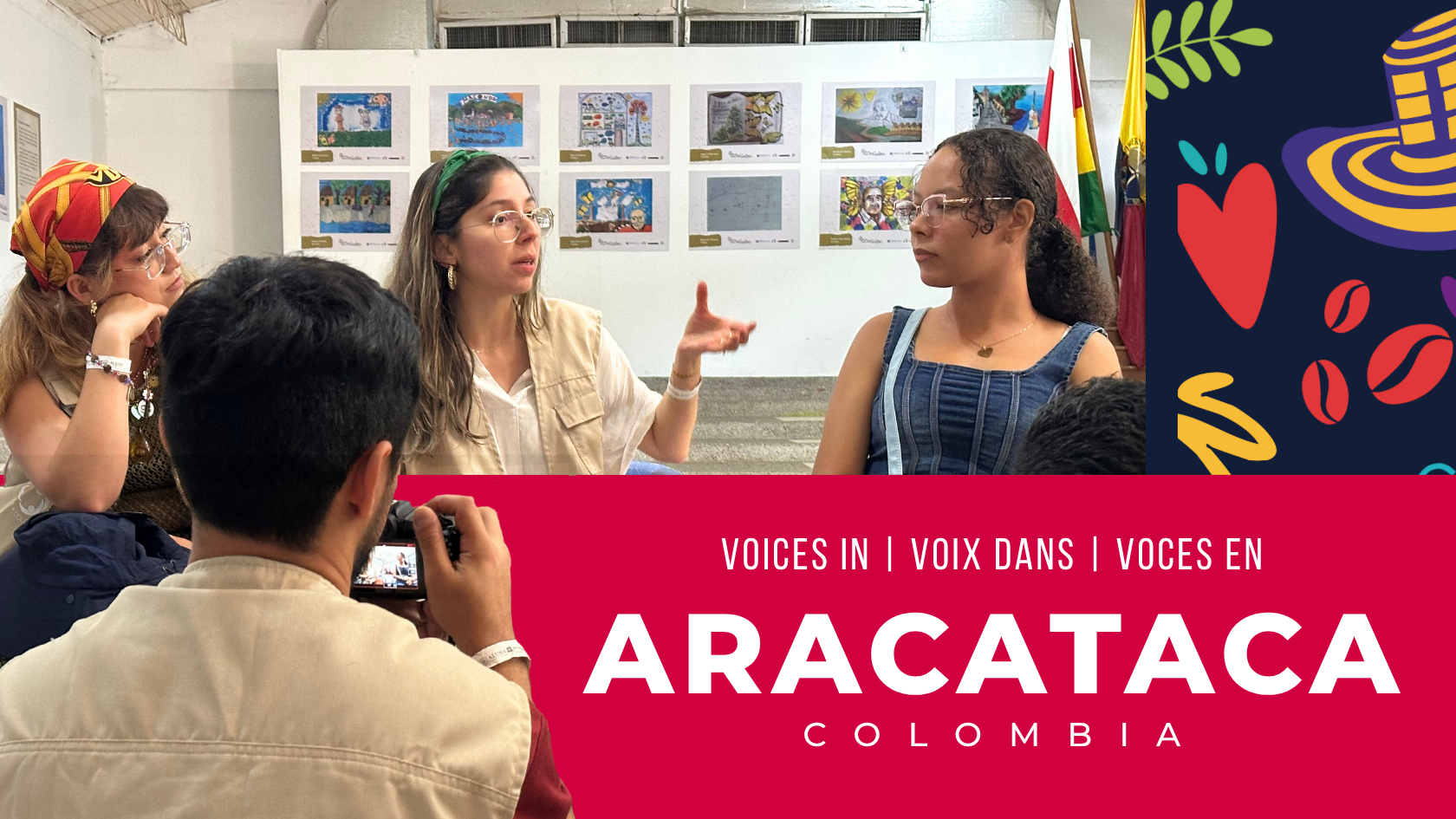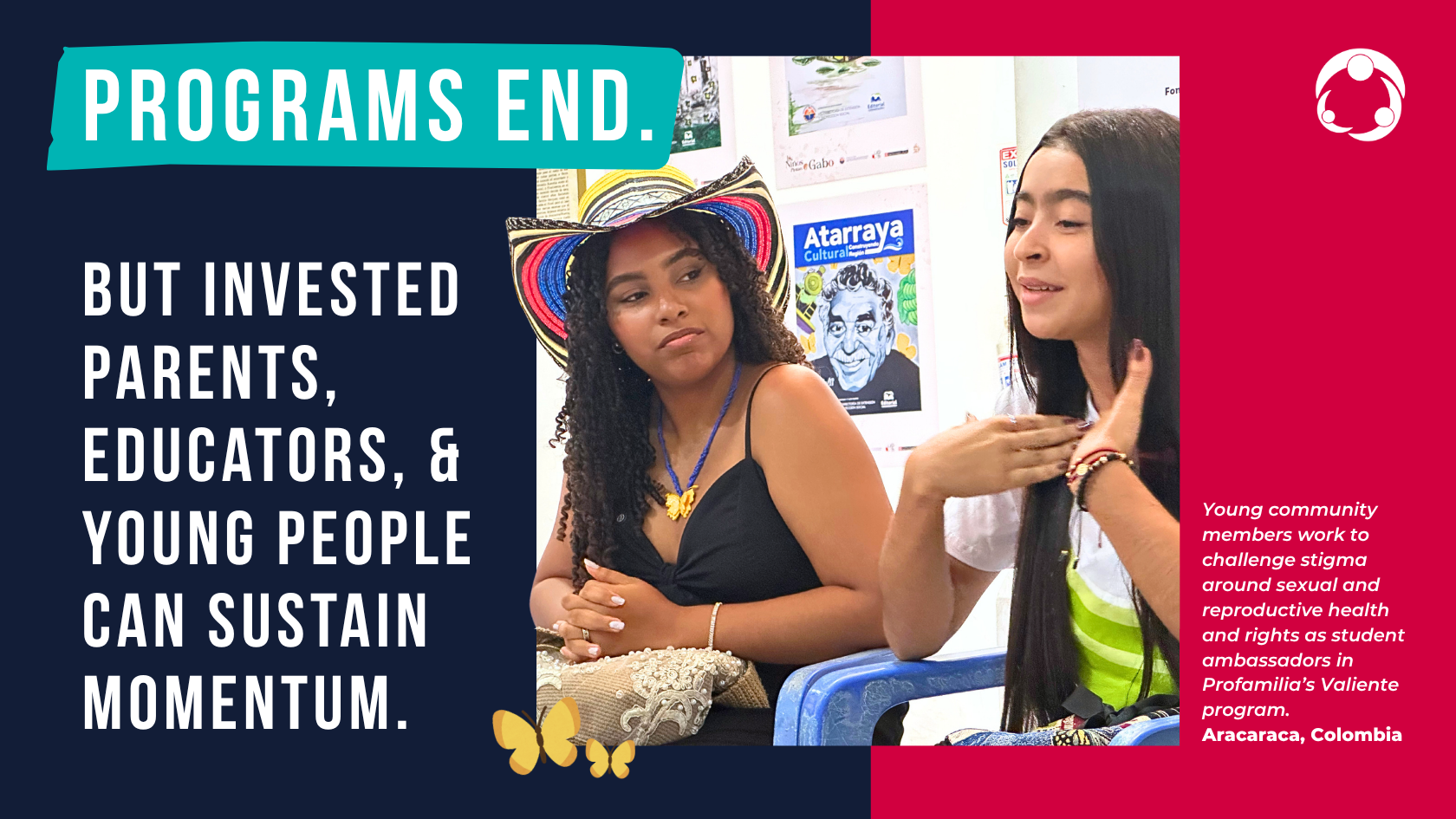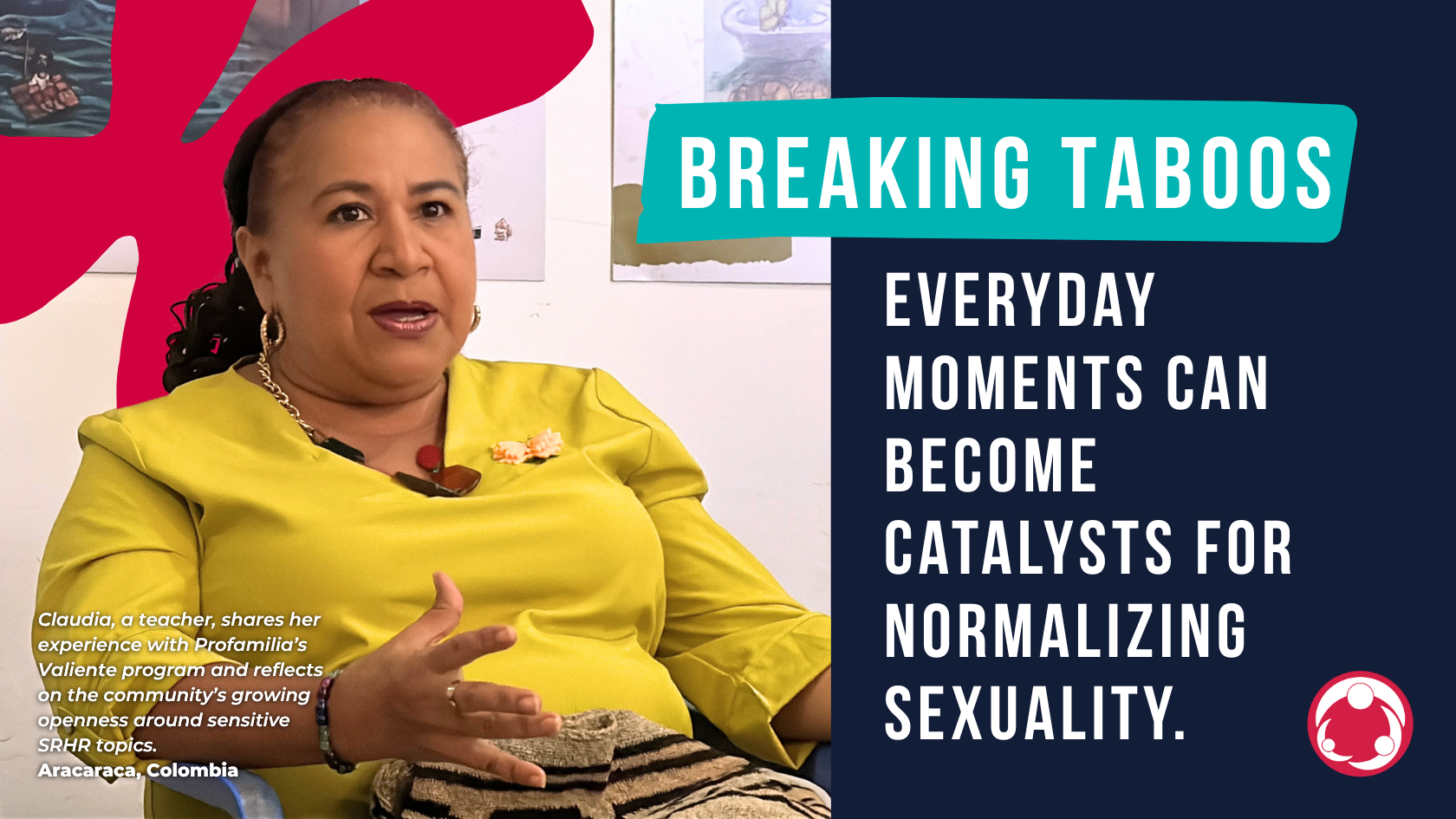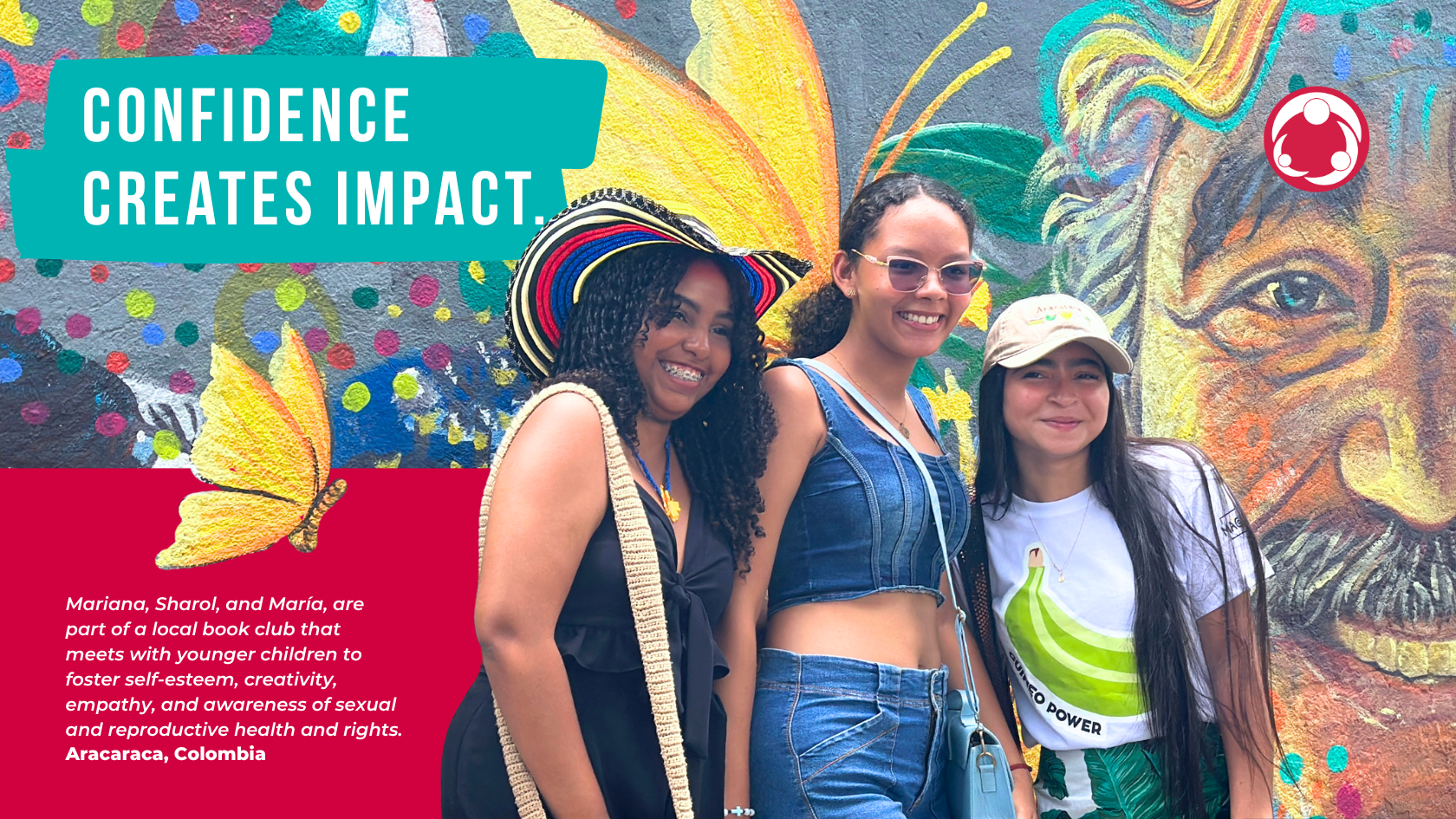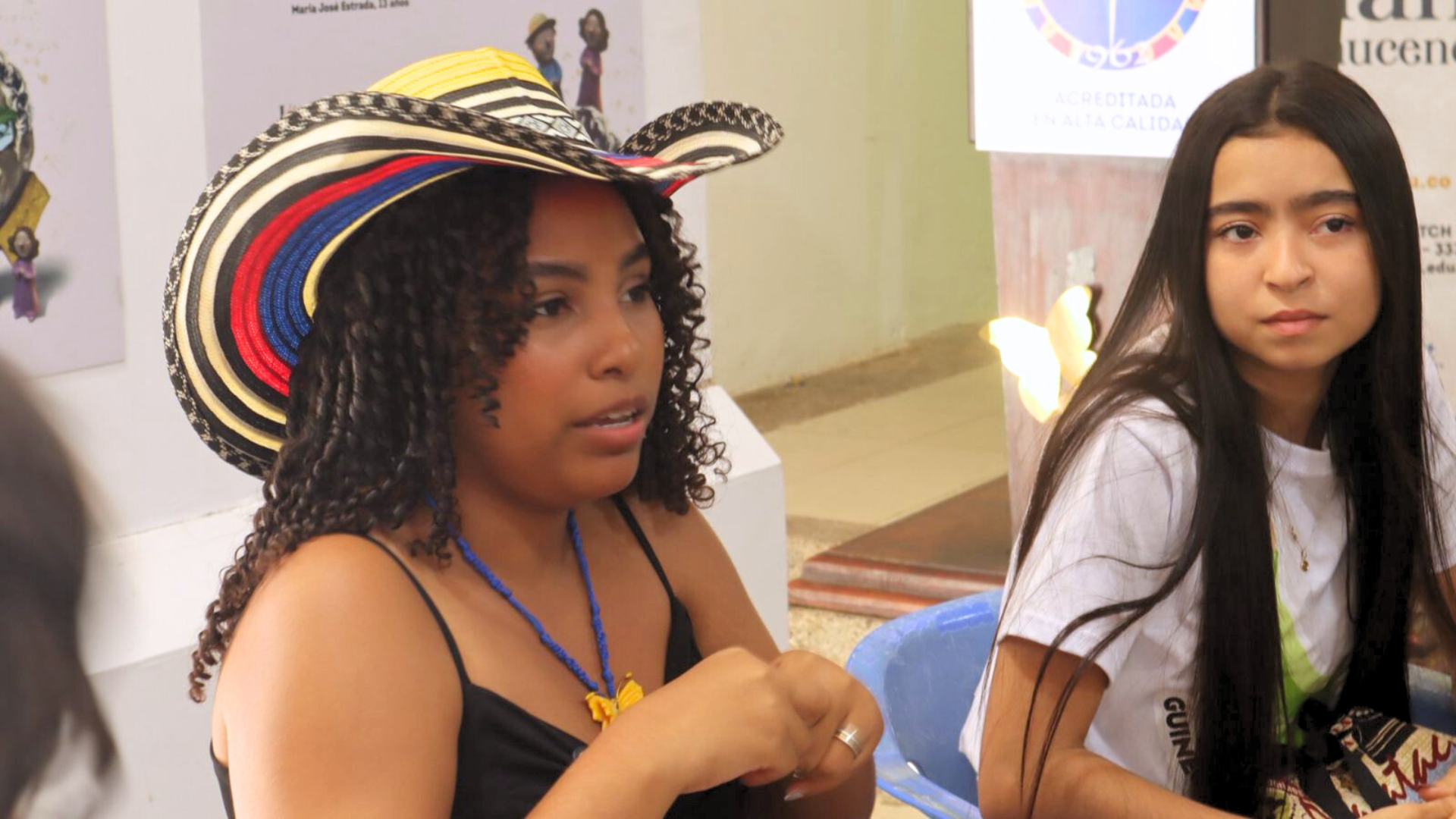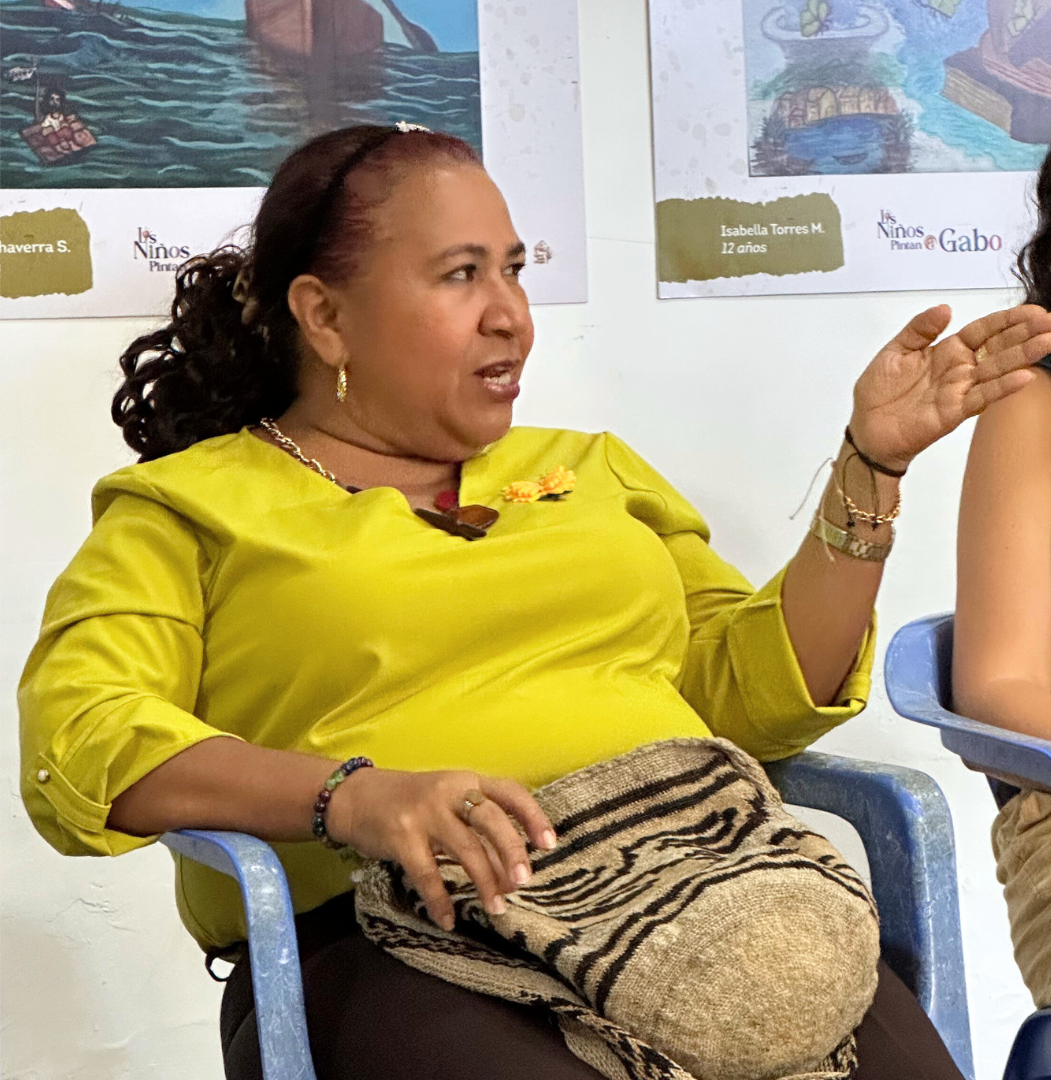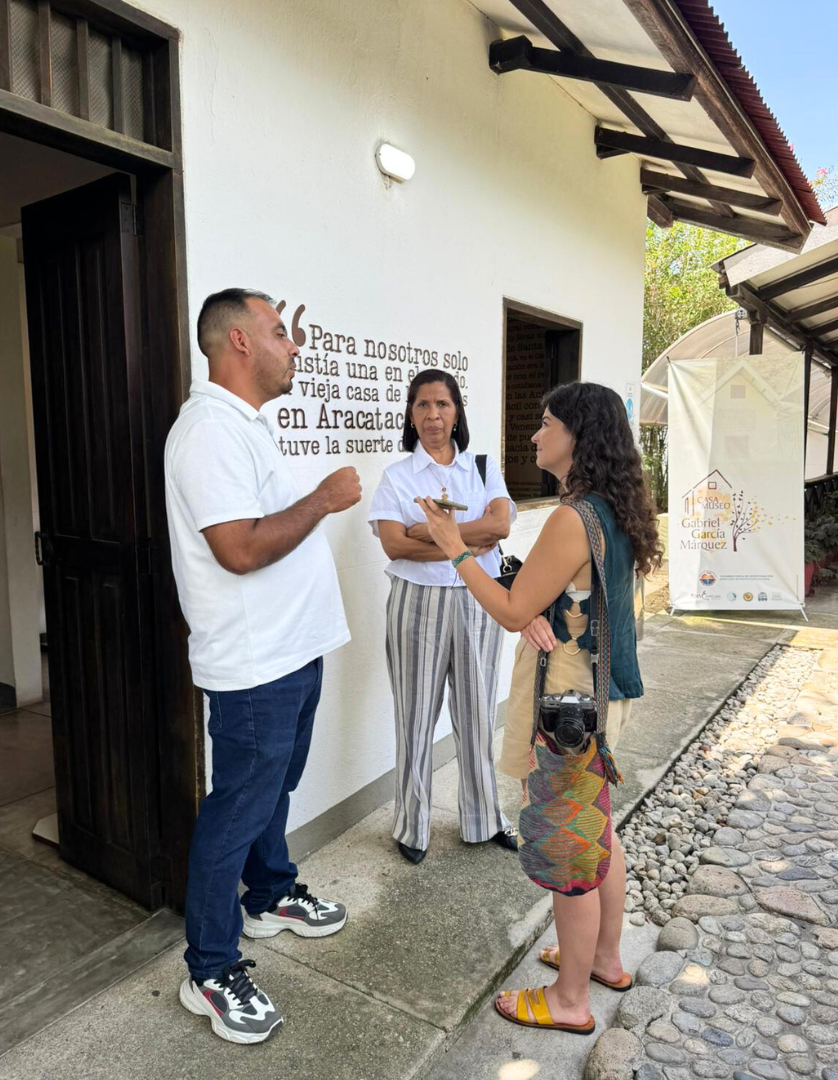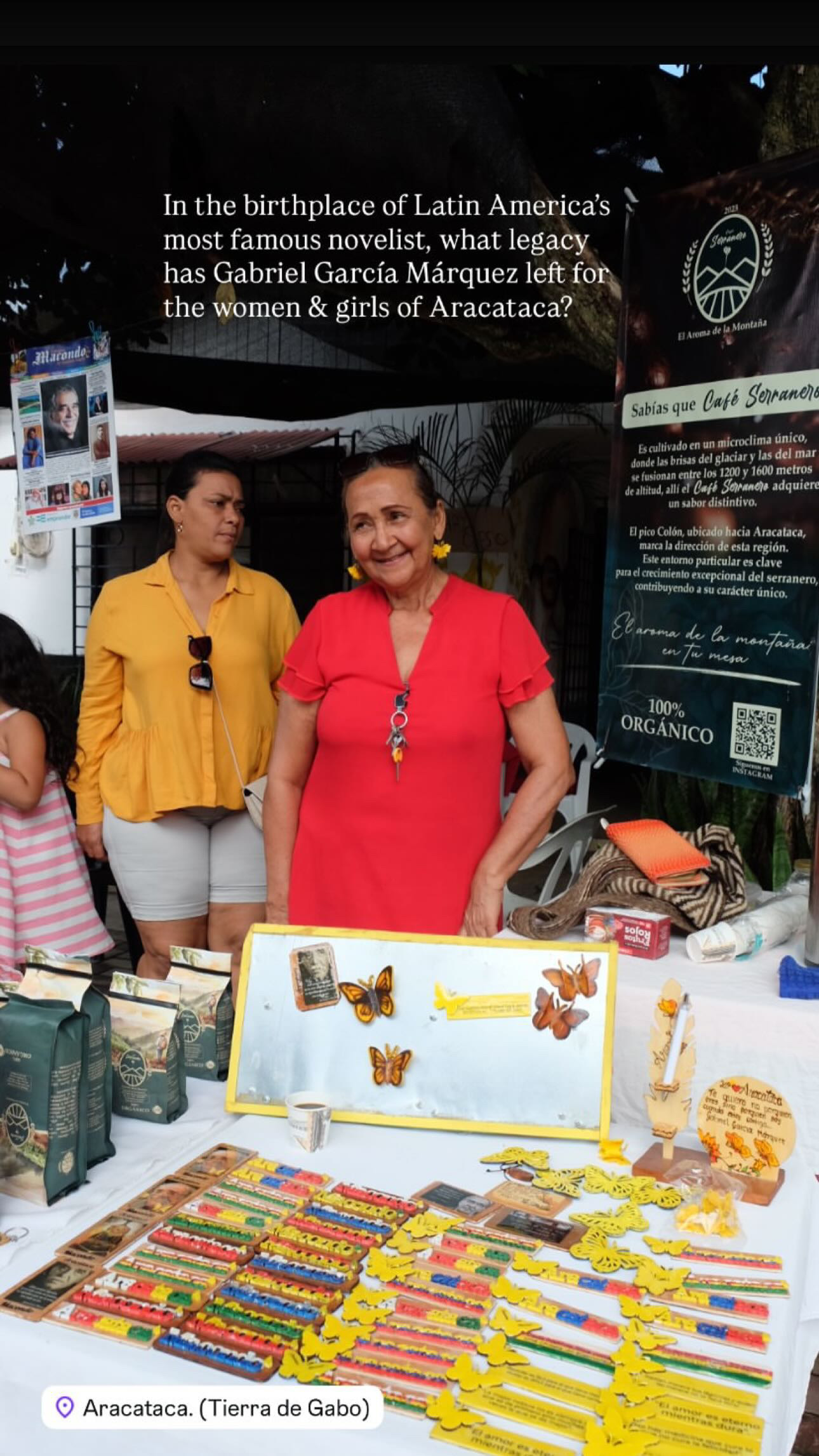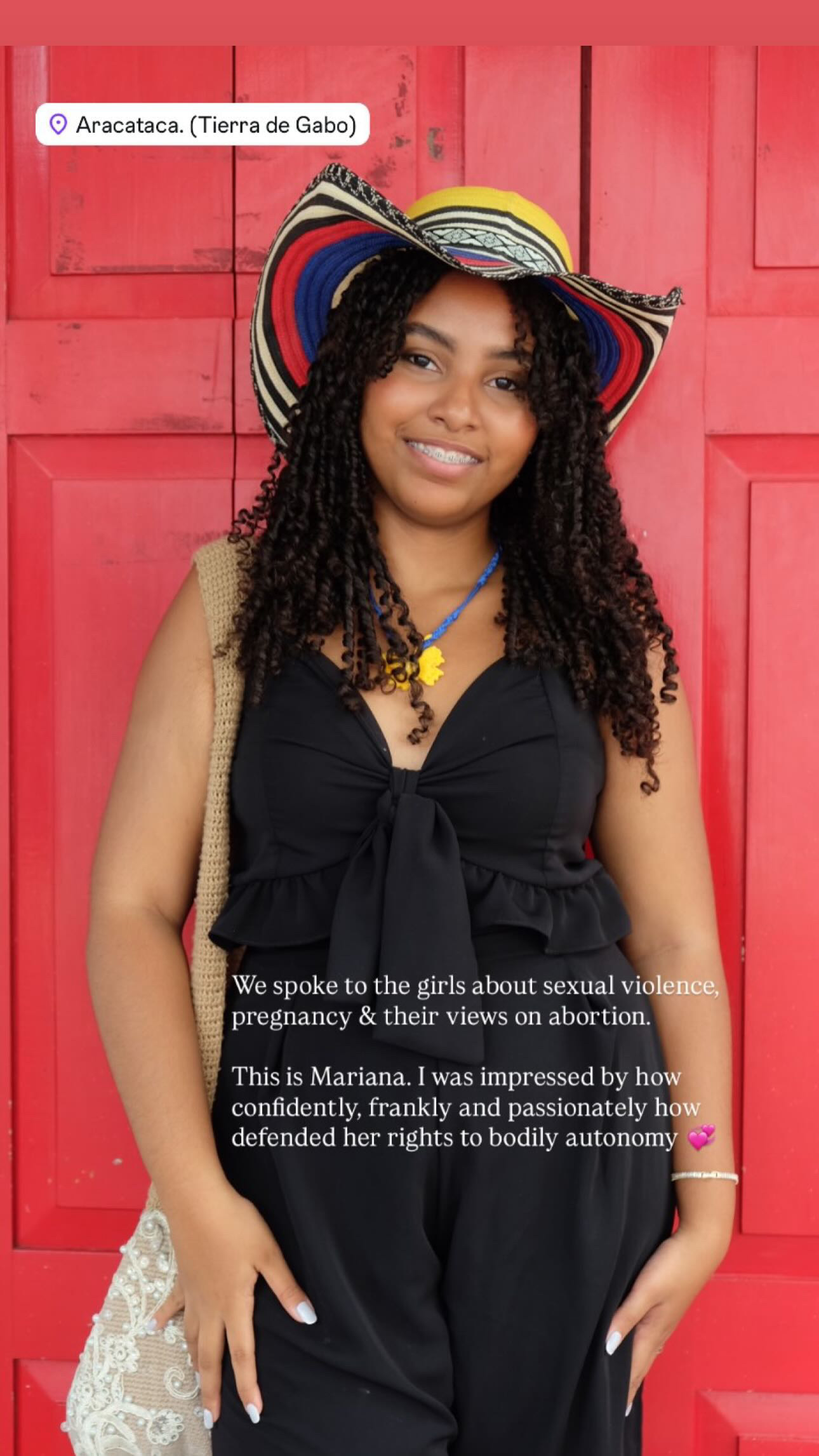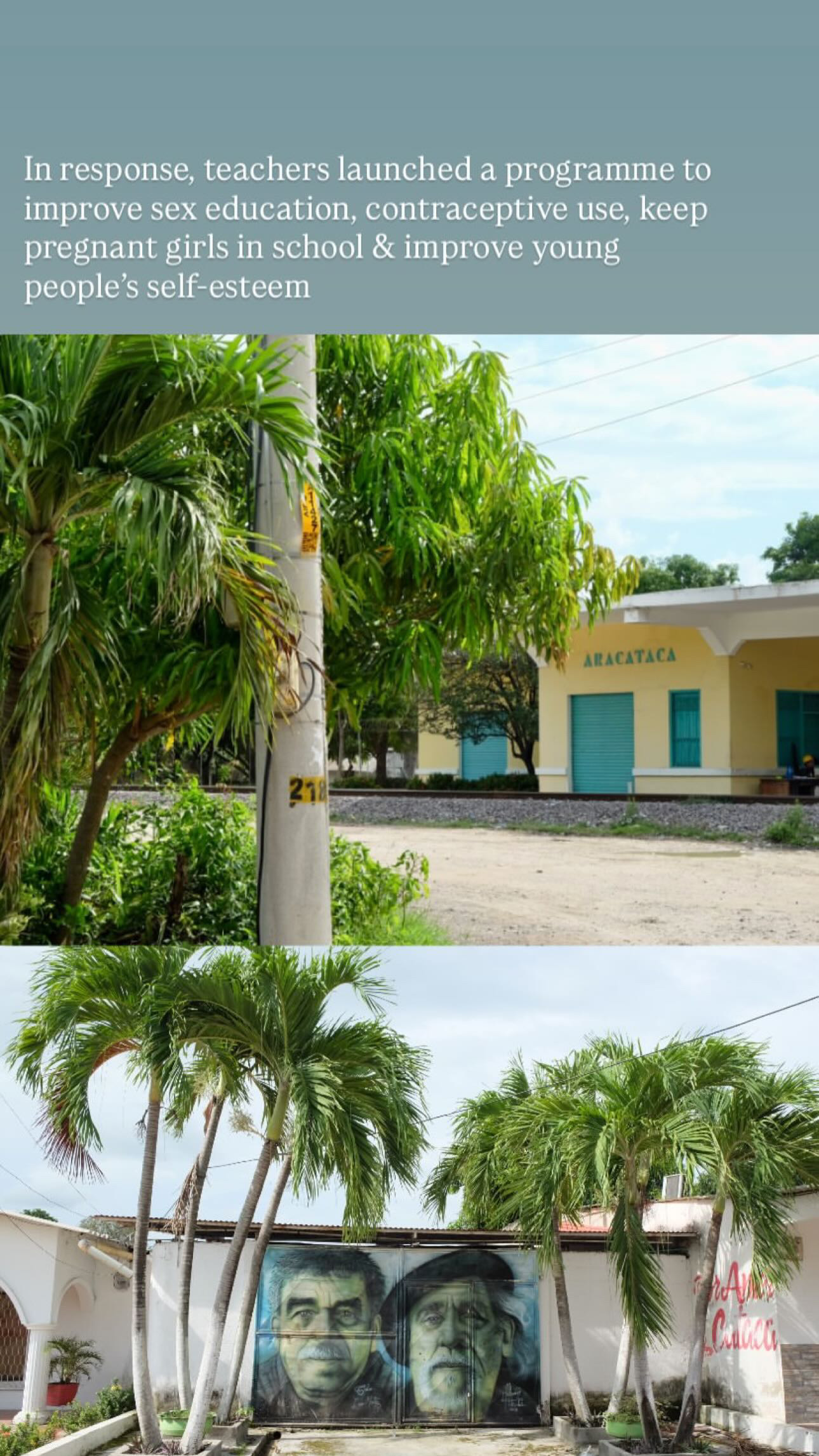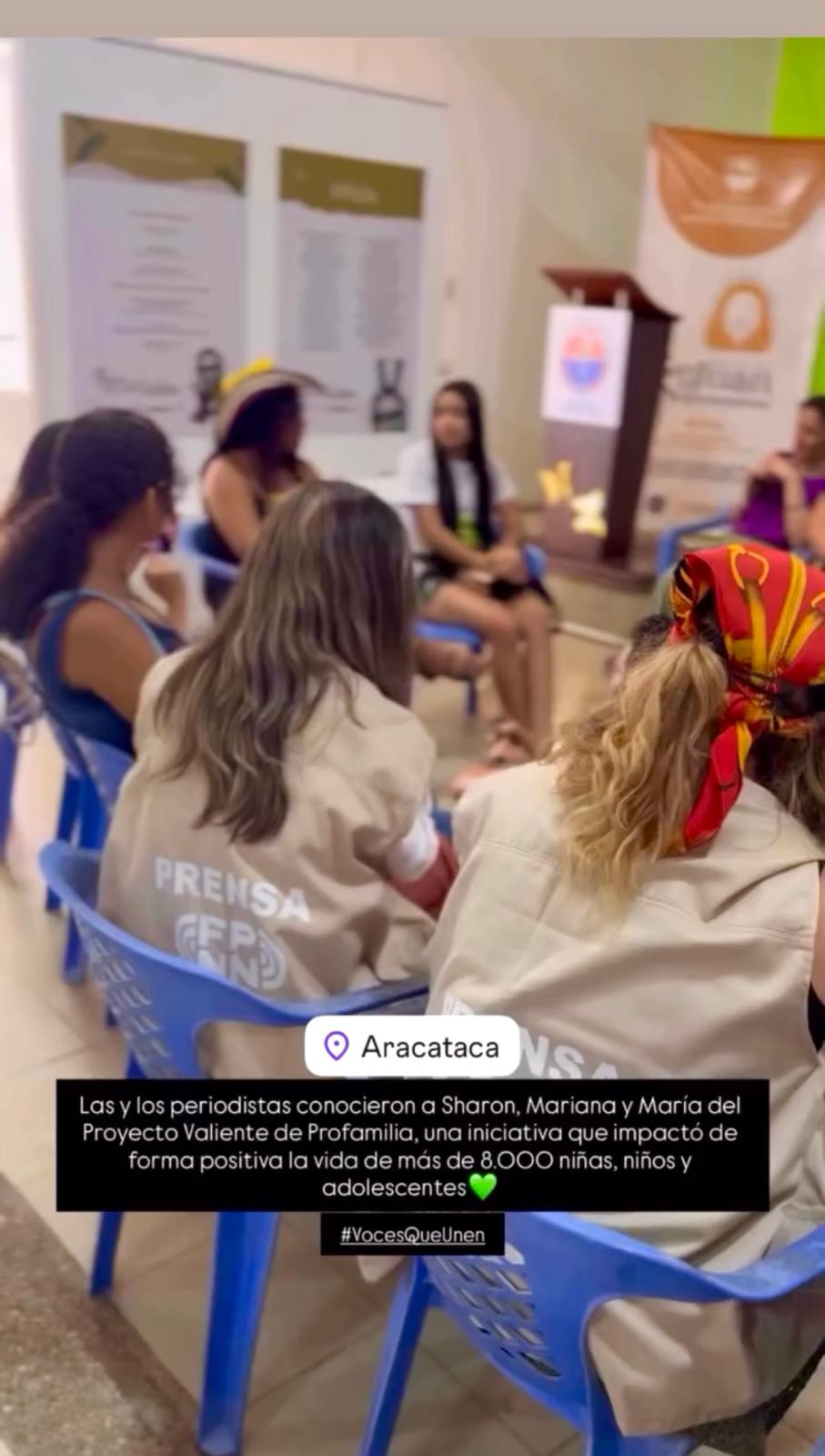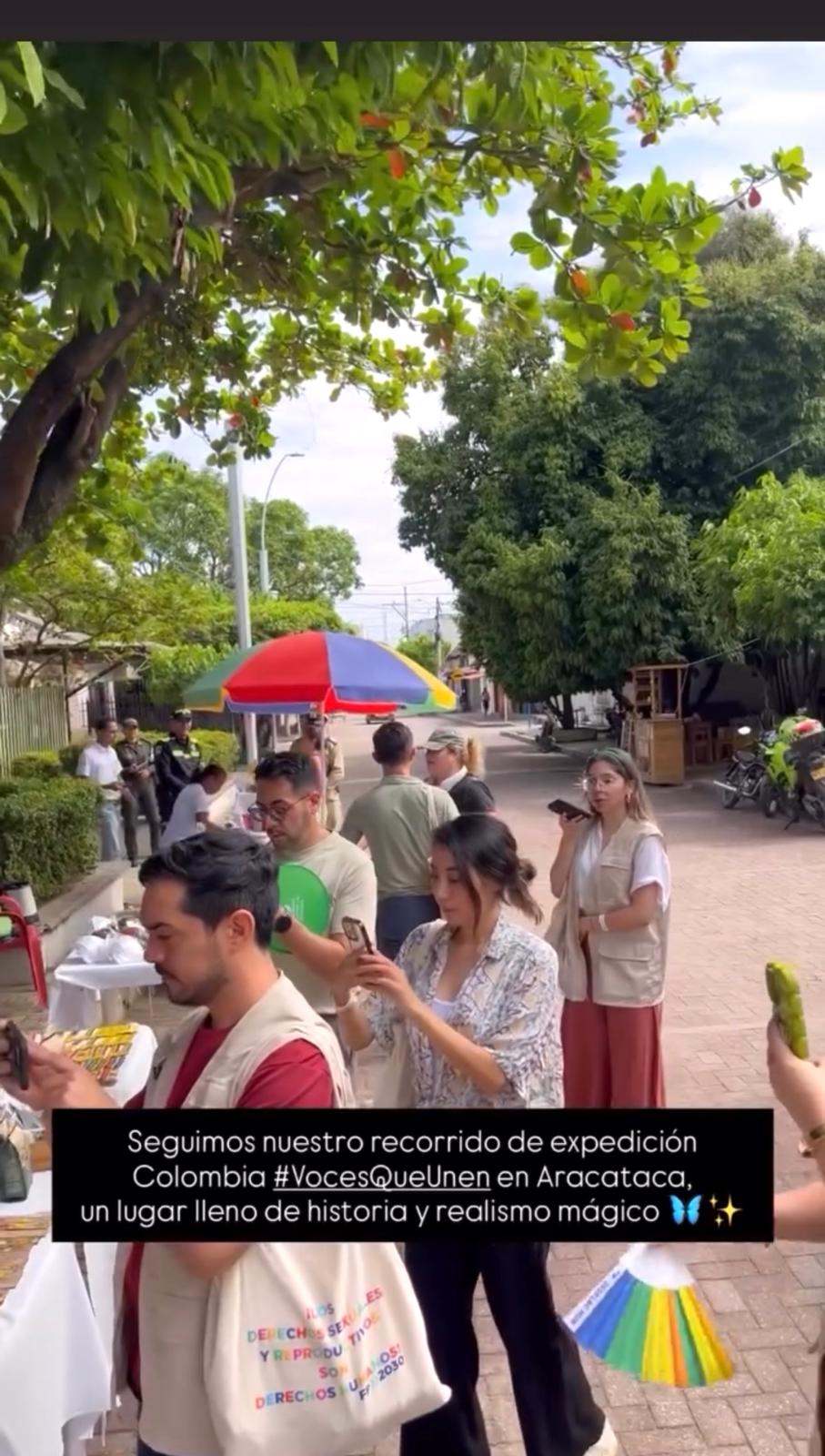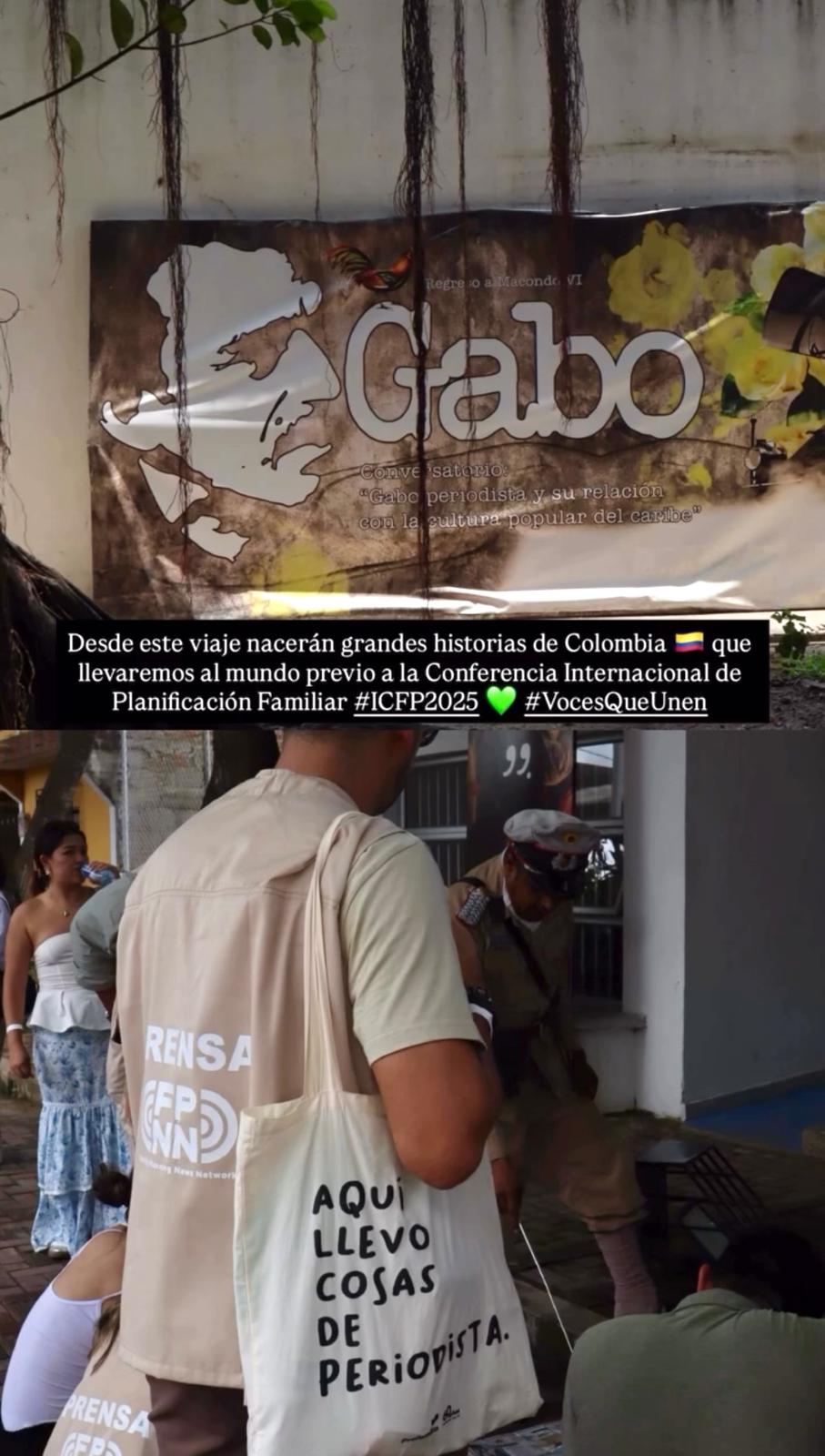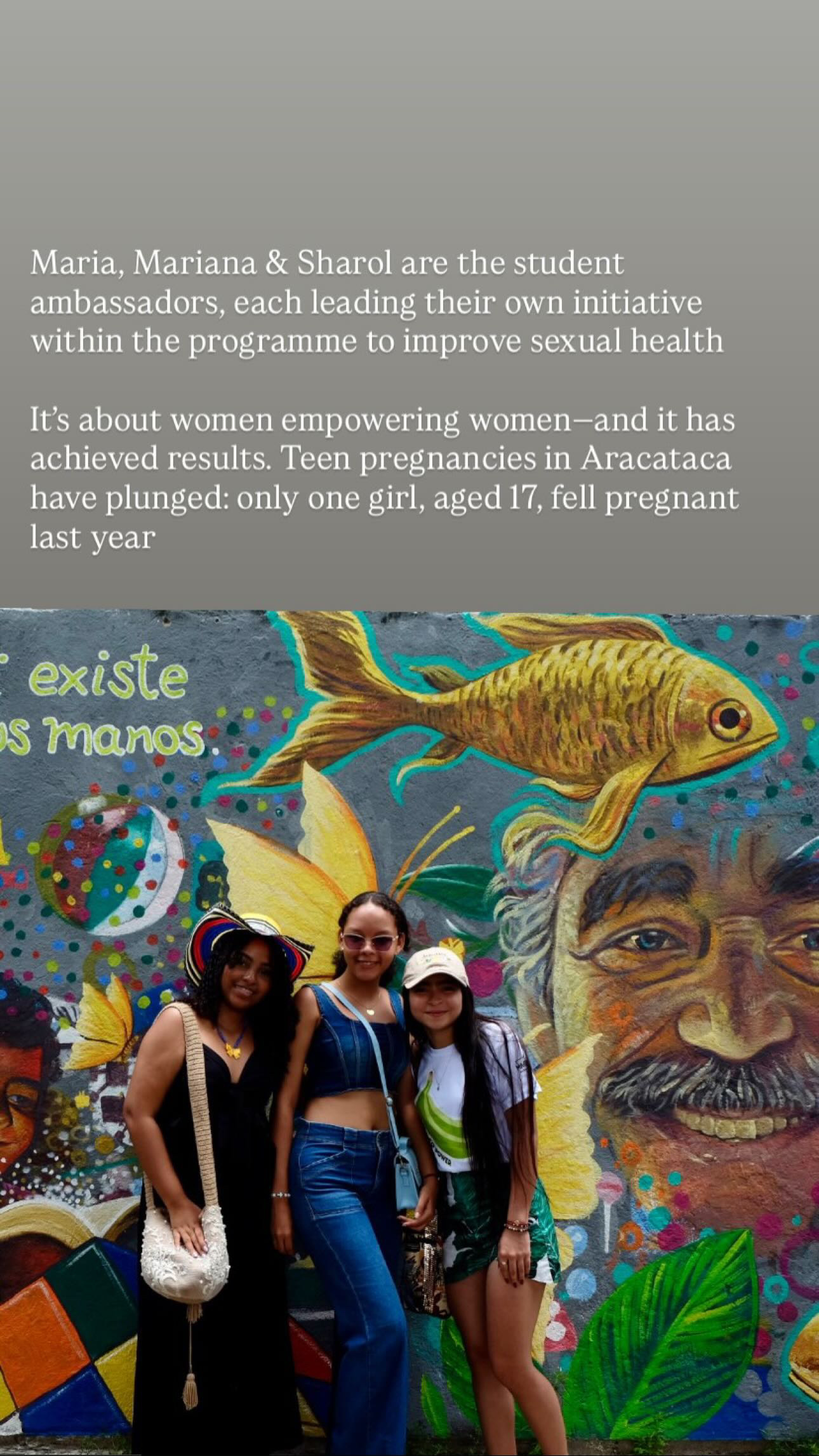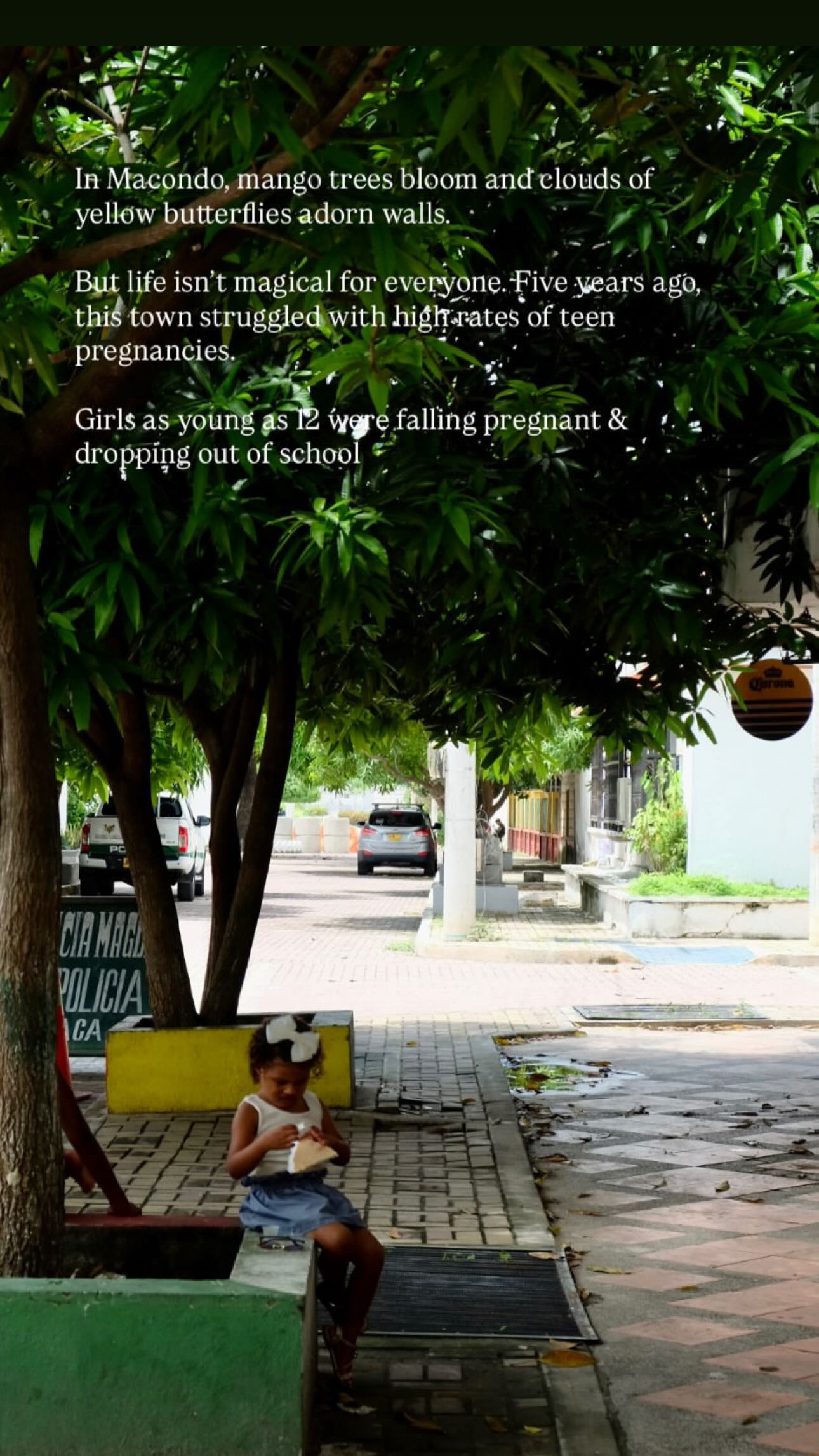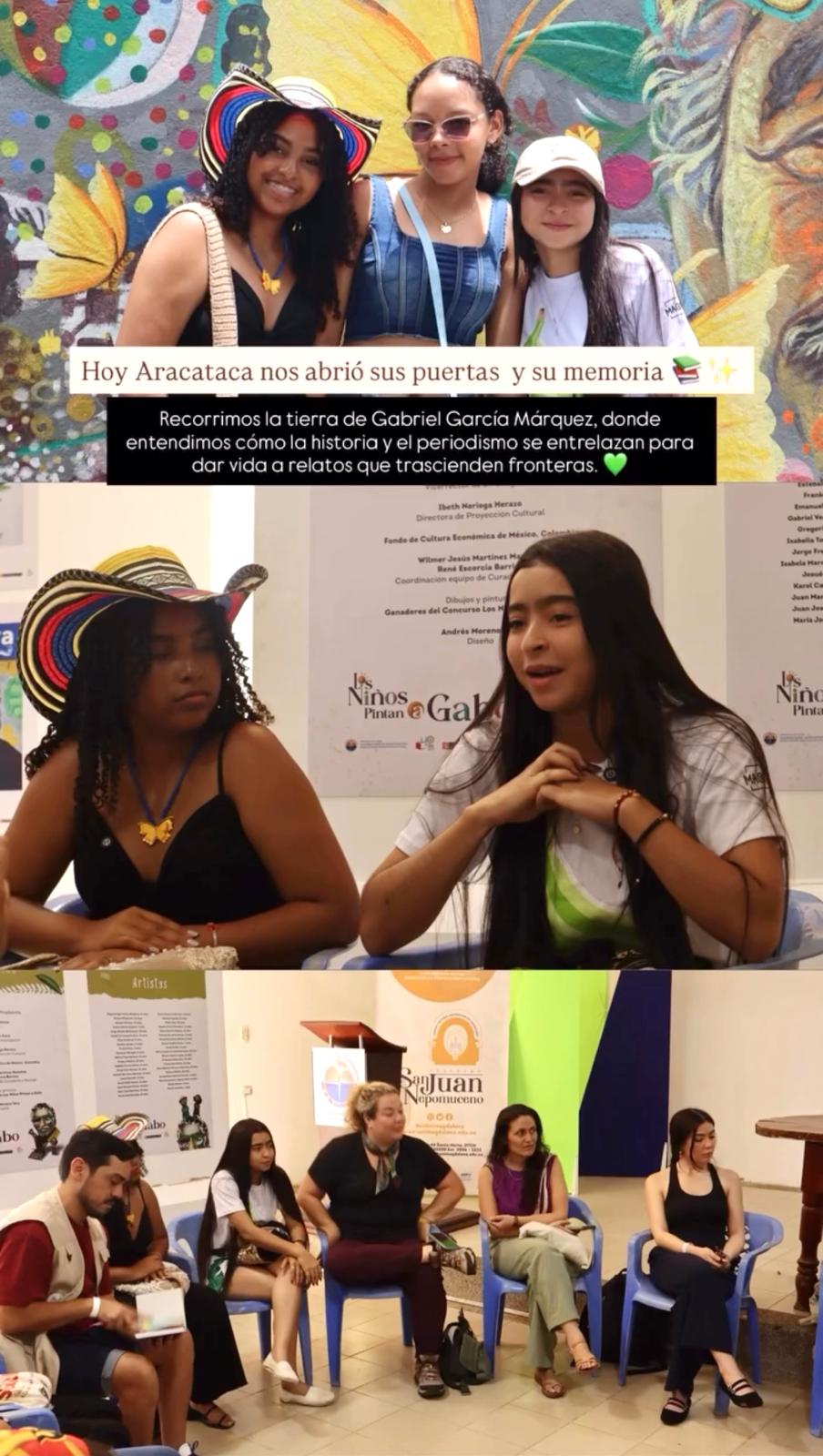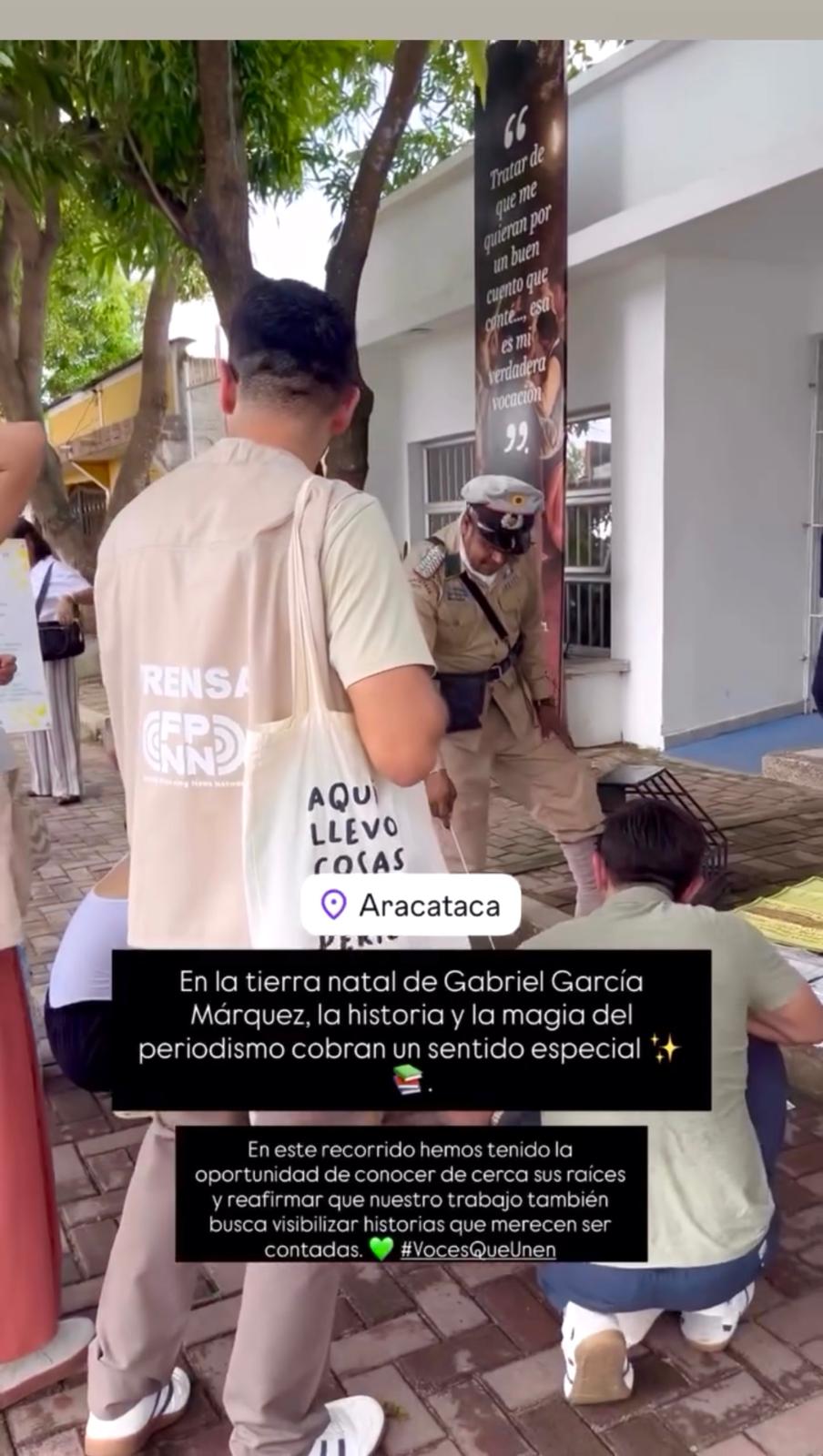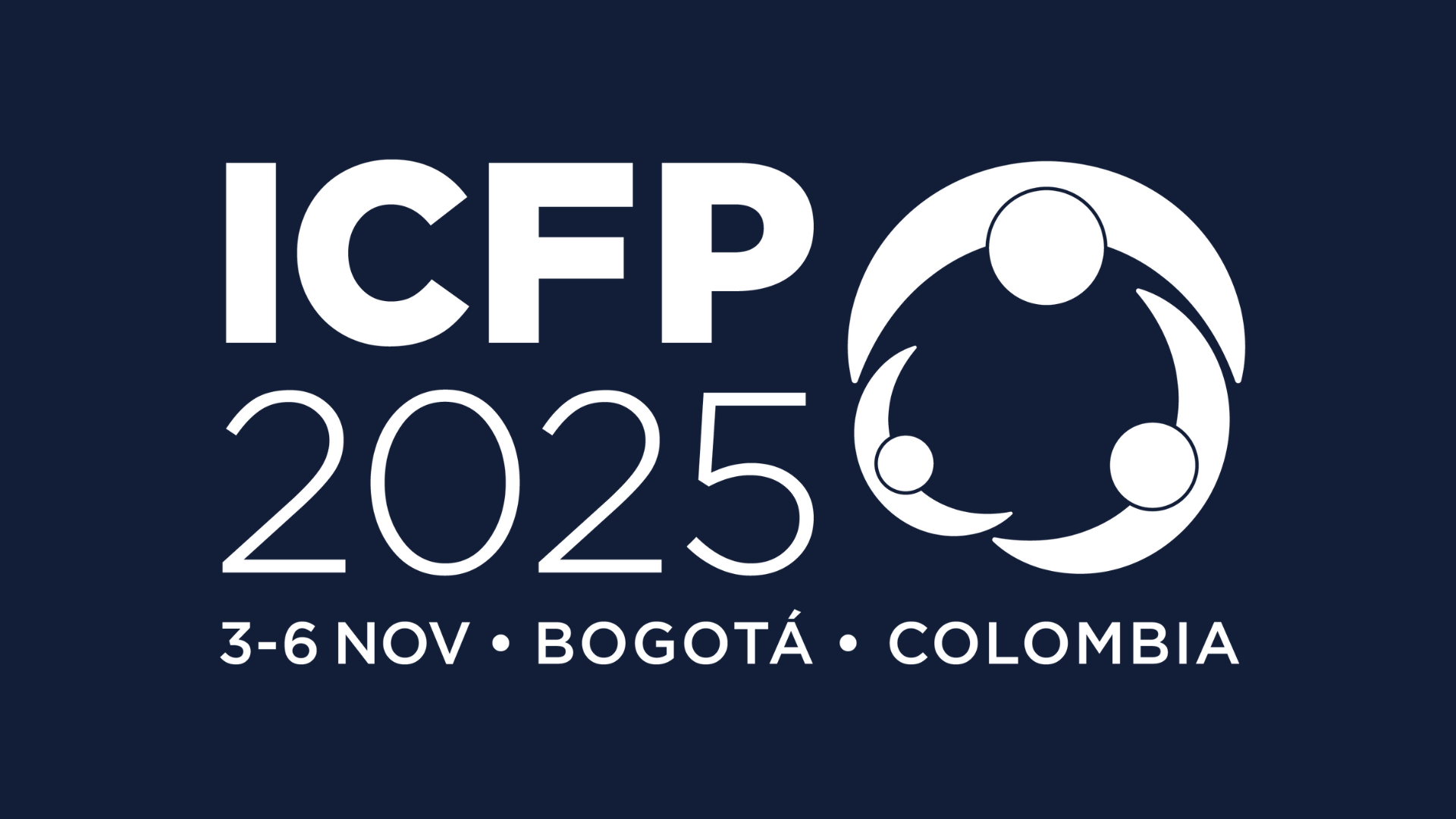Aracataca,
Colombia
In Aracataca, Local Educators, Young People, and Families Lead SRHR Transformation
An ICFP 2025 Blog From the FPNN Reporting Trip Across Colombia
Bogotá
“Bogotá Is Ready to Welcome the Global SRHR Community for ICFP 2025”
Cali
“In Cali, Cultural Knowledge and Community Partnerships Drive Health Equity”
Guapi
“Guapi: Where Rivers, Rhythm, and Resilience Shape Sexual and Reproductive Health”
Aracataca
“In Aracataca, Local Educators, Young People, and Families Lead SRHR Transformation”
Riohacha
“From Bicycles to Birthing Practices: How Riohacha Boldly Upholds Reproductive Health and Rights”
Aracataca, Colombia — Once grappling with high rates of teenage pregnancy and deep-rooted taboos around sexuality, Aracataca has become a model of what’s possible when schools, young people, families, and government all work together to bring conversations on sexual and reproductive health and rights (SRHR) into the open.
This small town in northern Colombia is best known as the birthplace of journalist and Nobel laureate Gabriel García Márquez. It also inspired Macondo, the mythical town in his novel One Hundred Years of Solitude. Márquez’s magical realism blurred the line between reality and imagination. Today, Aracataca’s own transformation feels just as powerful: a community once silenced by stigma is now rewriting its story through openness, education, and collective action.
On our recent Family Planning News Network (FPNN) reporting trip across Colombia in anticipation of ICFP 2025 this 1–6 November, community members shared how they create safe spaces for learning, dialogue, and empowerment.
Check out what they had to say below! ⬇⬇⬇
Turning Policy into Practice
At the outset, community members pointed to the importance of Colombia’s Law 1620 of 2013, which created the National System of School Coexistence and promotes a safe, inclusive and rights-based school environment.
The law requires every school to adopt a Manual de Convivencia (coexistence manual), which provides the school with a framework for addressing issues such as violence, bullying, gender identity, sexual health, and early pregnancy.
Educators in Aracataca told us that Law 1620 gave them the legitimacy and obligation to incorporate sexuality education into school life—moving conversations from the margins into official curricula and school policies.
For instance, one teacher highlighted an incident at school when a young boy blew up a condom like a balloon to tease other students. With the backing of Law 1620, the teacher was able to turn that moment into a learning opportunity. She could immediately start teaching the entire class about condoms and their significance.
However, the community members we spoke with also made it clear that laws alone are not enough. Implementation depends on consistent local leadership, political will, and family engagement to make rights real in daily life. In Aracataca, the difference was that educators and parents embraced the law as a tool for dialogue and protection, not just as a bureaucratic requirement.
A Community Success Story: The Valiente Program
Building on Law 1620, the Valiente (brave) program turned policy into action. Led by Profamilia and the Embassy of Canada in Colombia, Valiente was a community-based SRHR initiative in multiple regions throughout Colombia (including, La Guajira, Magdalena, Chocó, Cauca) that ran for about five years and focused on comprehensive sexuality education (CSE).
Notably, participation was voluntary, therefore relying on community commitment. According to community members, the program directly engaged around 1,600 people in Aracataca alone, including children, adolescents, parents, teachers, social leaders, and local authorities (including the Mayor’s Office and Ministry of Education).
One mother said, “As a parent, I found Valiente transformative…I can proudly say that we are now more open to talking about these kinds of issues with our sons and daughters.”
In addition, Valiente promoted peer-to-peer education and tackling SRHR issues creatively. For example, students developed classroom games to quiz each other on information about contraception as part of a “Boys and Girls Say No to Early Pregnancy” campaign. Some even took to writing, and reimagined classic stories in literature removing elements of gender-based violence to picture a world where everyone’s rights are upheld and respected.
A psychologist there noted, “Valiente emphasized leadership development among young people, empowering them to advocate for themselves and their peers.”
This can be seen in one account by a teenage girl who spoke about her friend.
“…she was one of the shyest girls. One of the people who participated the least. And as the program progressed, she became that powerful voice.”
Sustaining Impact Longterm
“We have a duty and we also have the desire to continue doing—impacting our community based on what we know, what we are familiar with, and what we can continue to do.”
Even though the Valiente program ended in Aracataca, its influence lives on. Students and teachers share knowledge, mentor peers, and participate in dialogues about SRHR.
A group of girls highlighted their ongoing book club at the public library, where they regularly meet with younger children to read, write, teach character development, and engage in activities that spark imagination and build empathy,
“…with the children in my club, I personally began to work with them on activities that would empower them in terms of their sexual and reproductive health and their reproductive rights, beyond the program itself.”
Though challenges involving SRHR persist (including funding issues and tension around sensitive issues like abortion), Aracataca has seen noticeable cultural shifts:
- Teenage pregnancy rates have dropped significantly.
- Topics once taboo are now more openly discussed.
- Adolescents report stronger self-esteem, greater feelings of bodily autonomy, and better decision-making regarding their sexual health.
Lessons for the Global SRHR Community
For SRHR professionals around the world, Aracataca reminds us:
- Policy creates space, but practice drives change. Laws are essential, but local leadership and community engagement make them effective.
- Youth-led approaches work. When adolescents take the lead, peers listen and participate. Crucially, this builds confidence in young people.
- Family involvement accelerates impact. Parents can help dismantle harmful stigma and reinforce rights at home.
- Networks ensure continuity. Even after programs end, connected teachers and youth can sustain momentum.
As ICFP 2025 prepares to bring the global SRHR community together in Bogotá and online this 1–6 November, Aracataca’s story is a reminder that “equity through action” requires embedding rights into everyday spaces to ensure that conversations about SRHR endure beyond any single program.
Voices on Social Media
Explore social media posts from this FPNN Colombia Reporting Trip stop below ⬇
From Aracataca with Love
See snapshots from our time in Aracataca where community members shared their stories with FPNN journalists ⬇
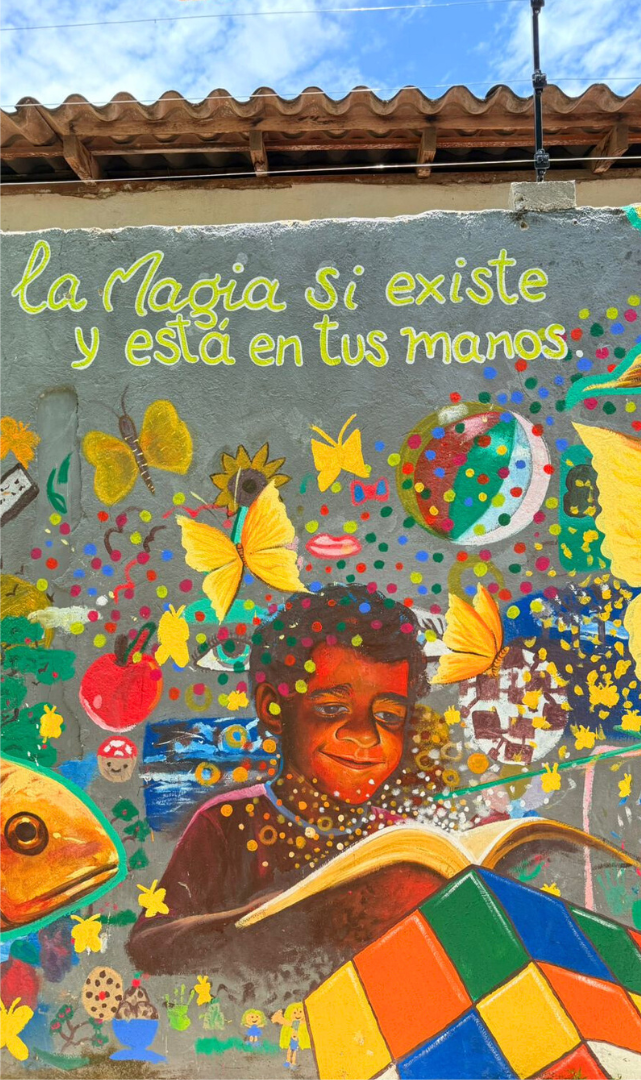
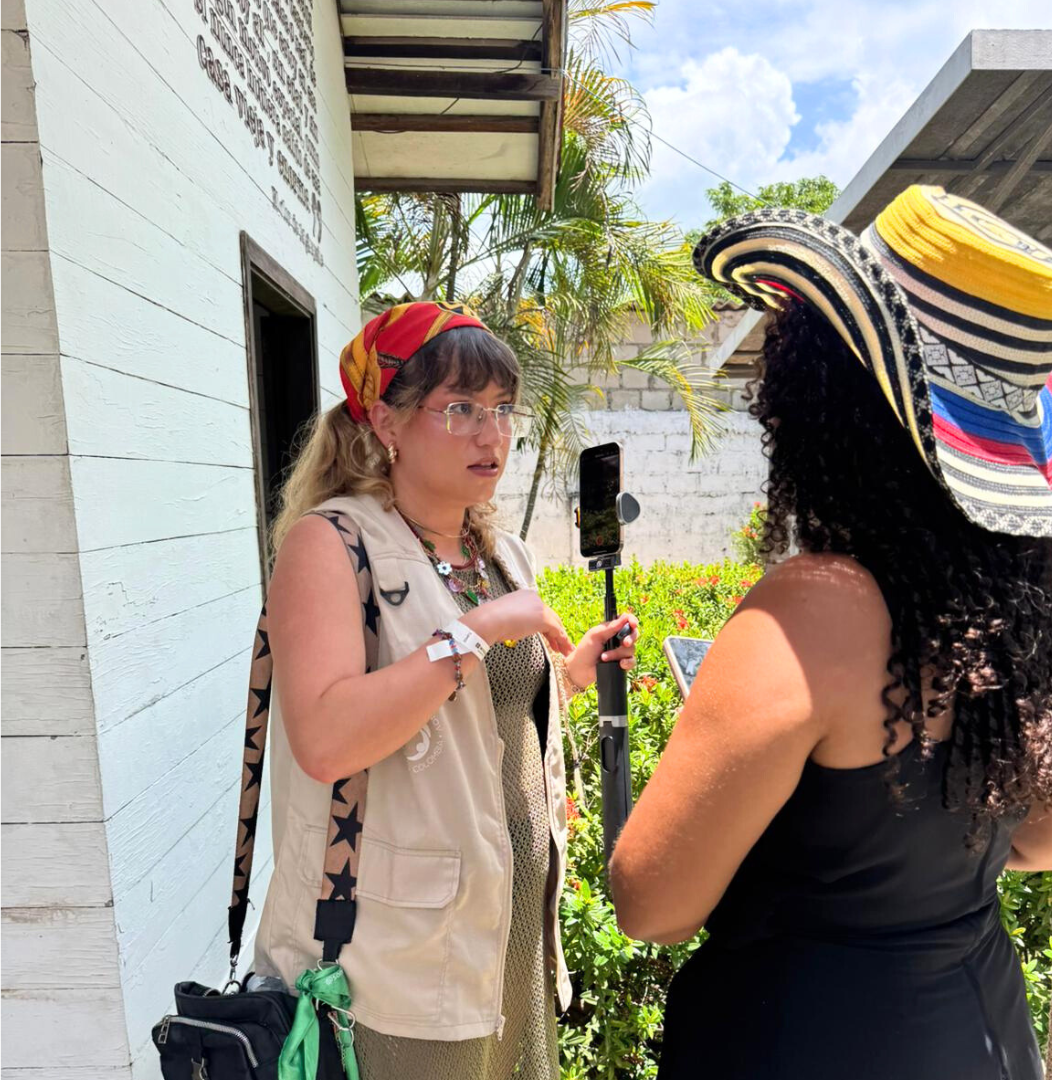
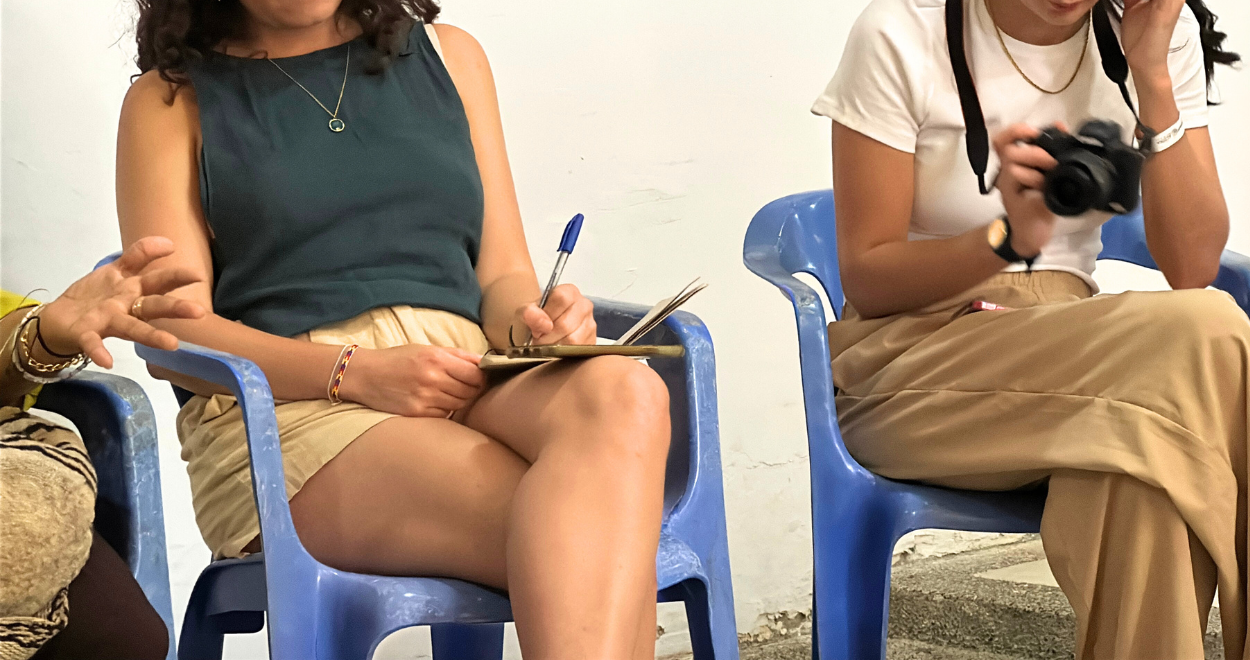
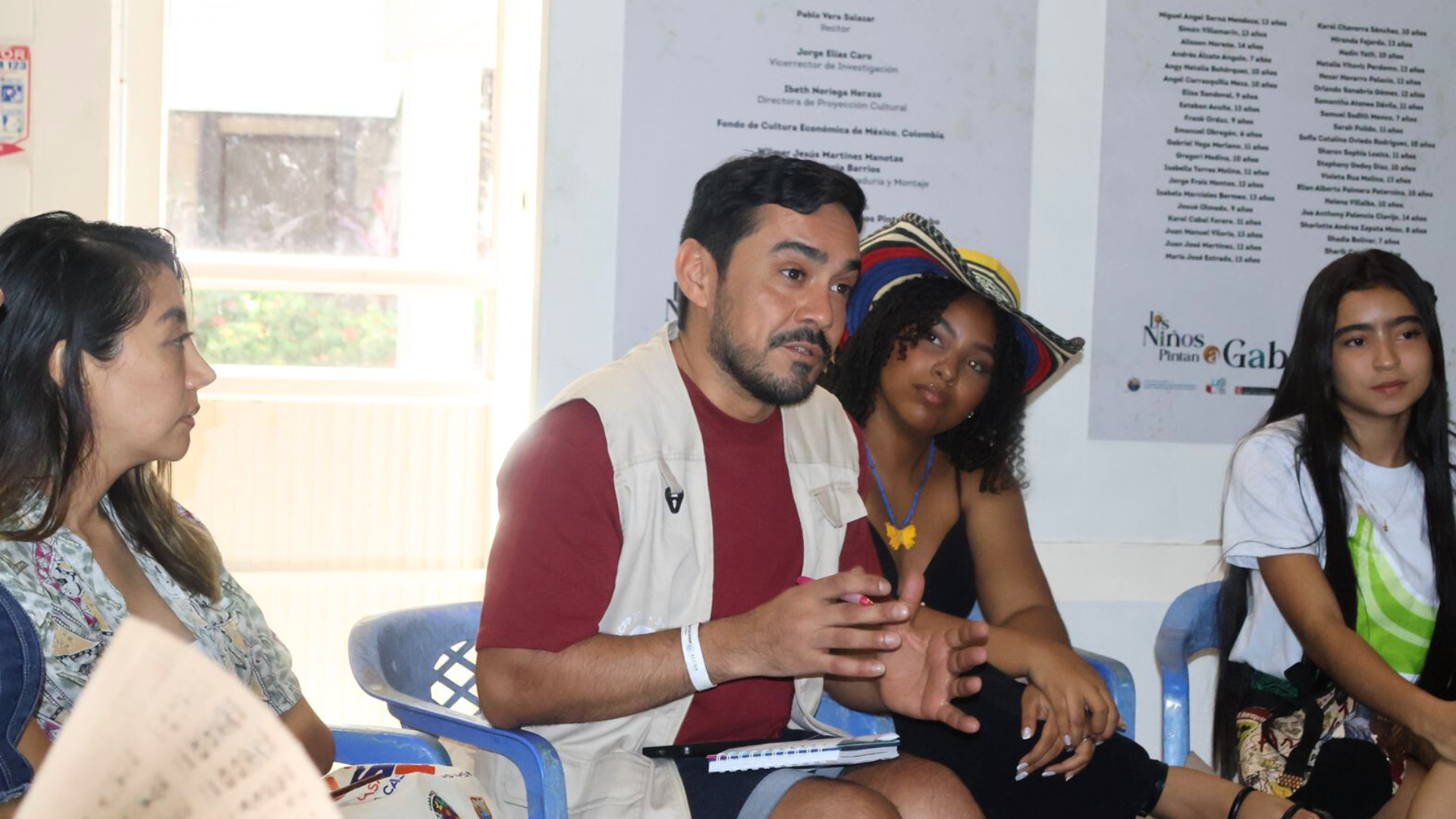
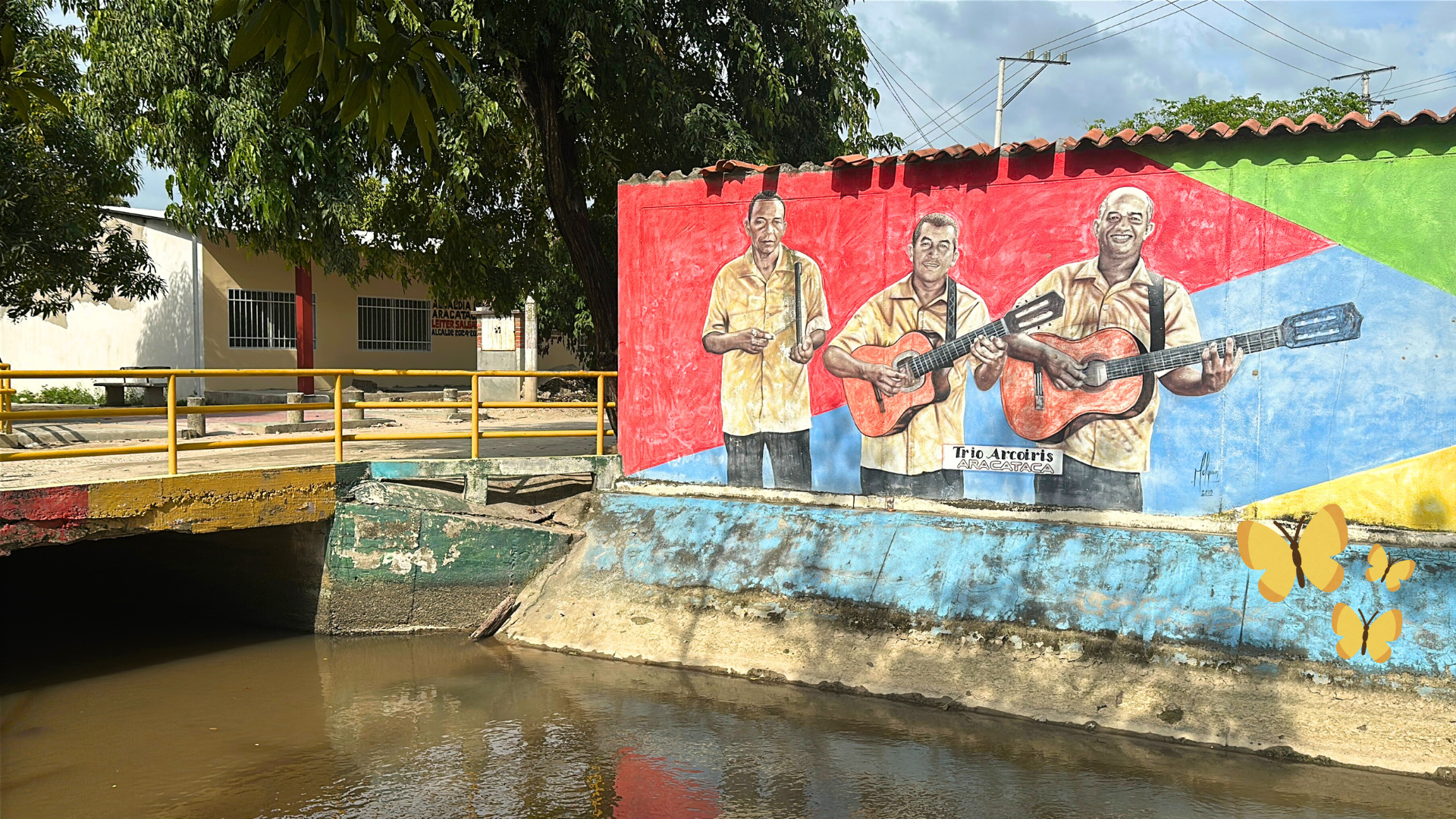
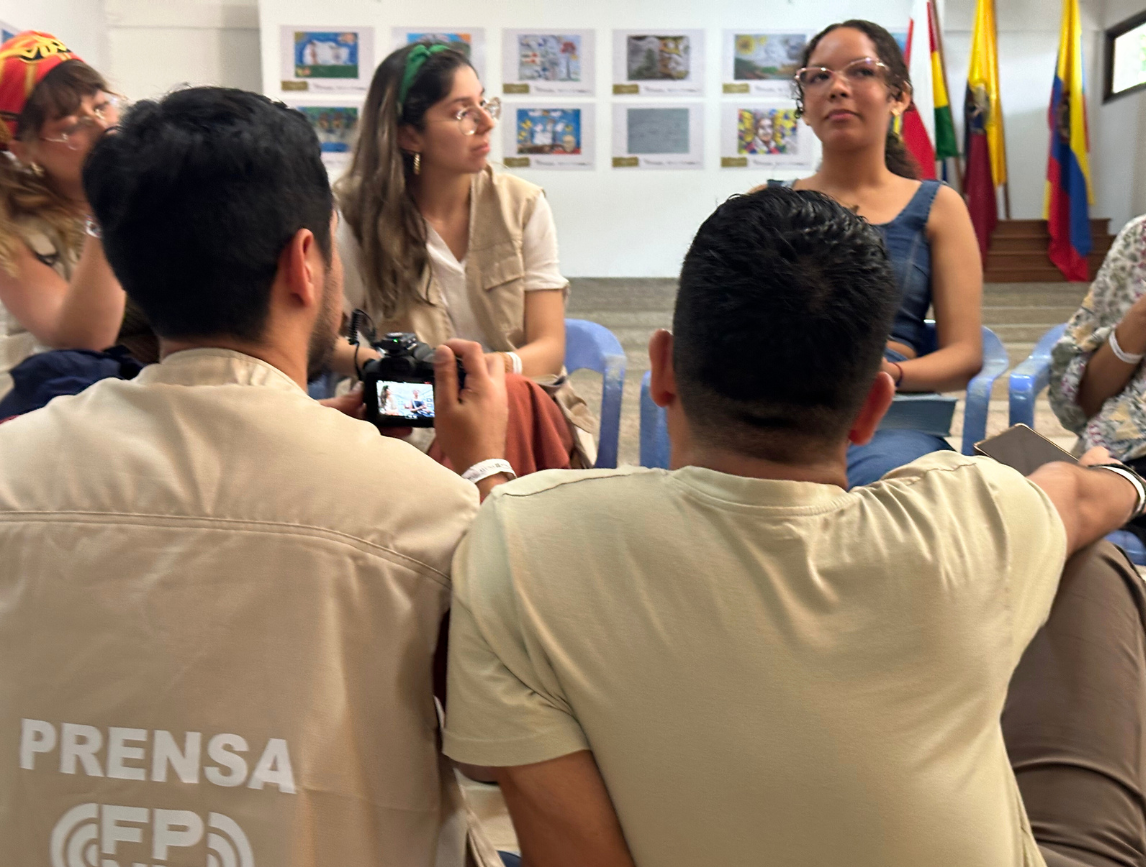
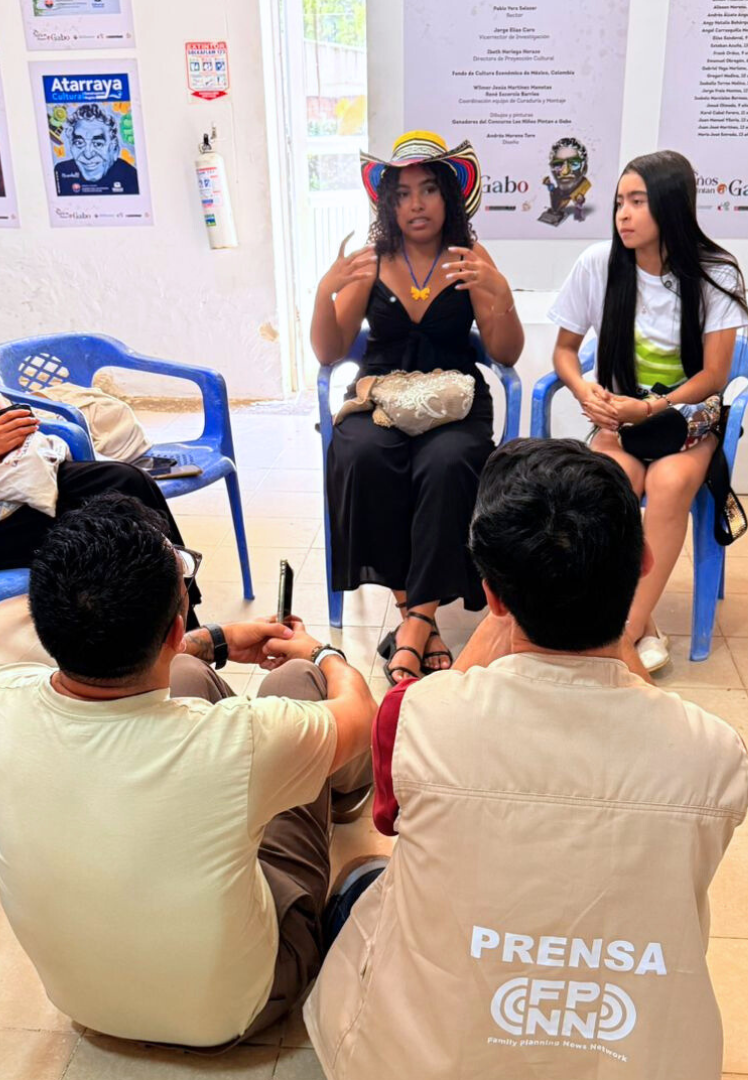

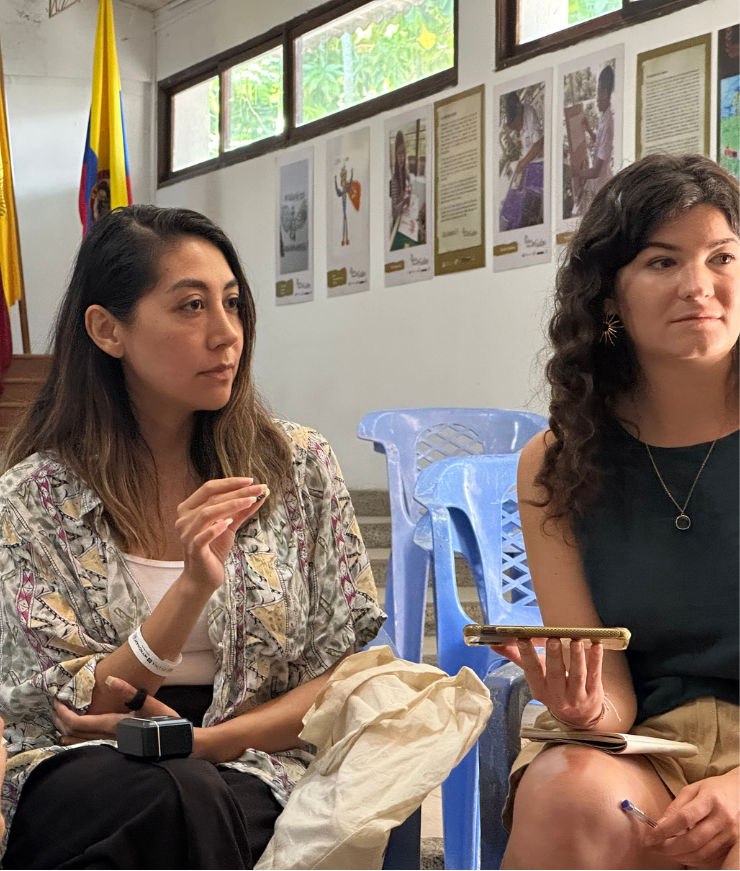
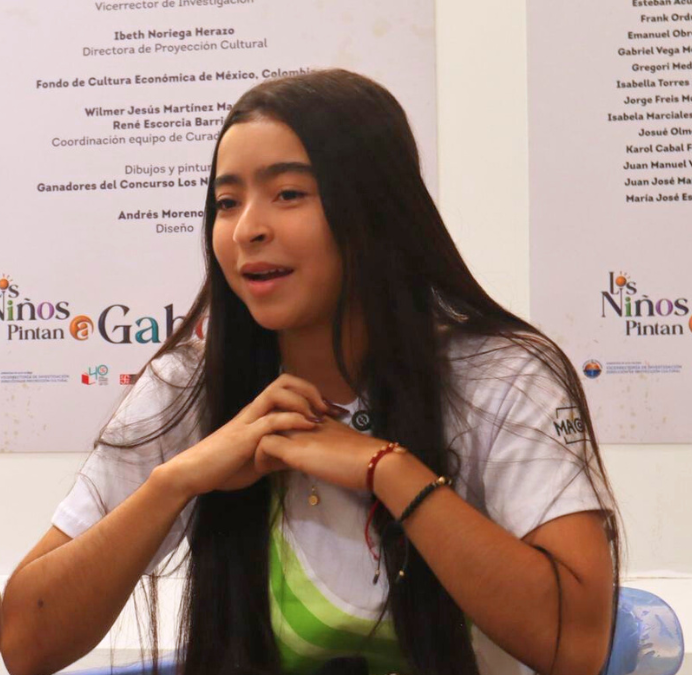
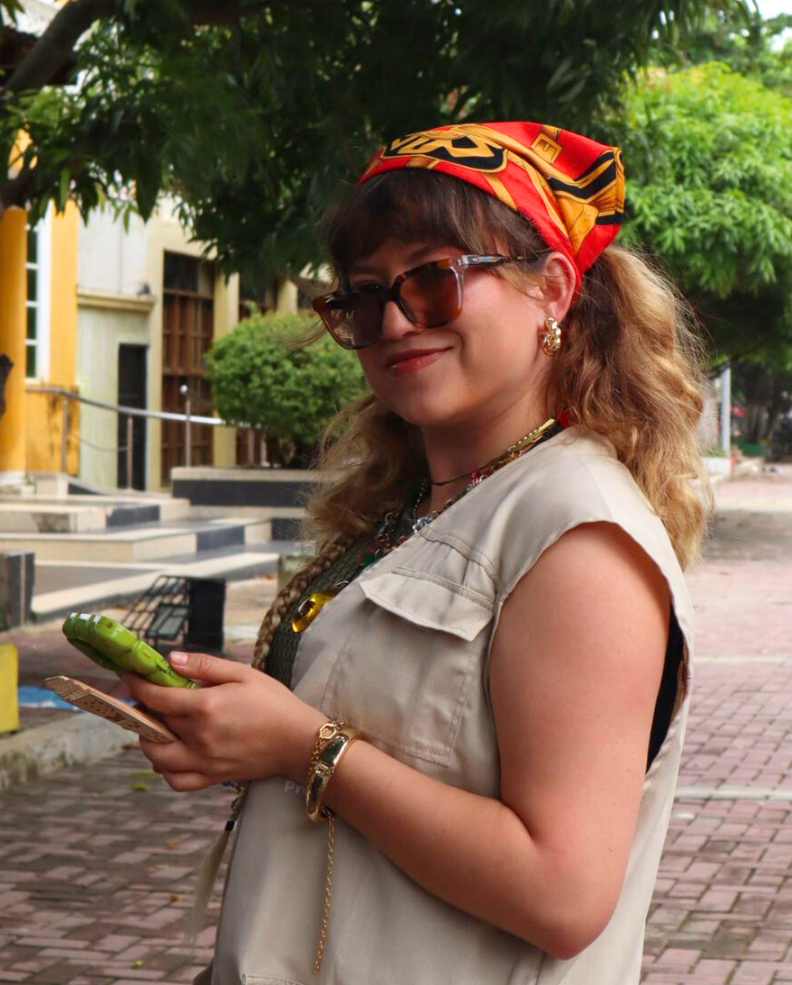
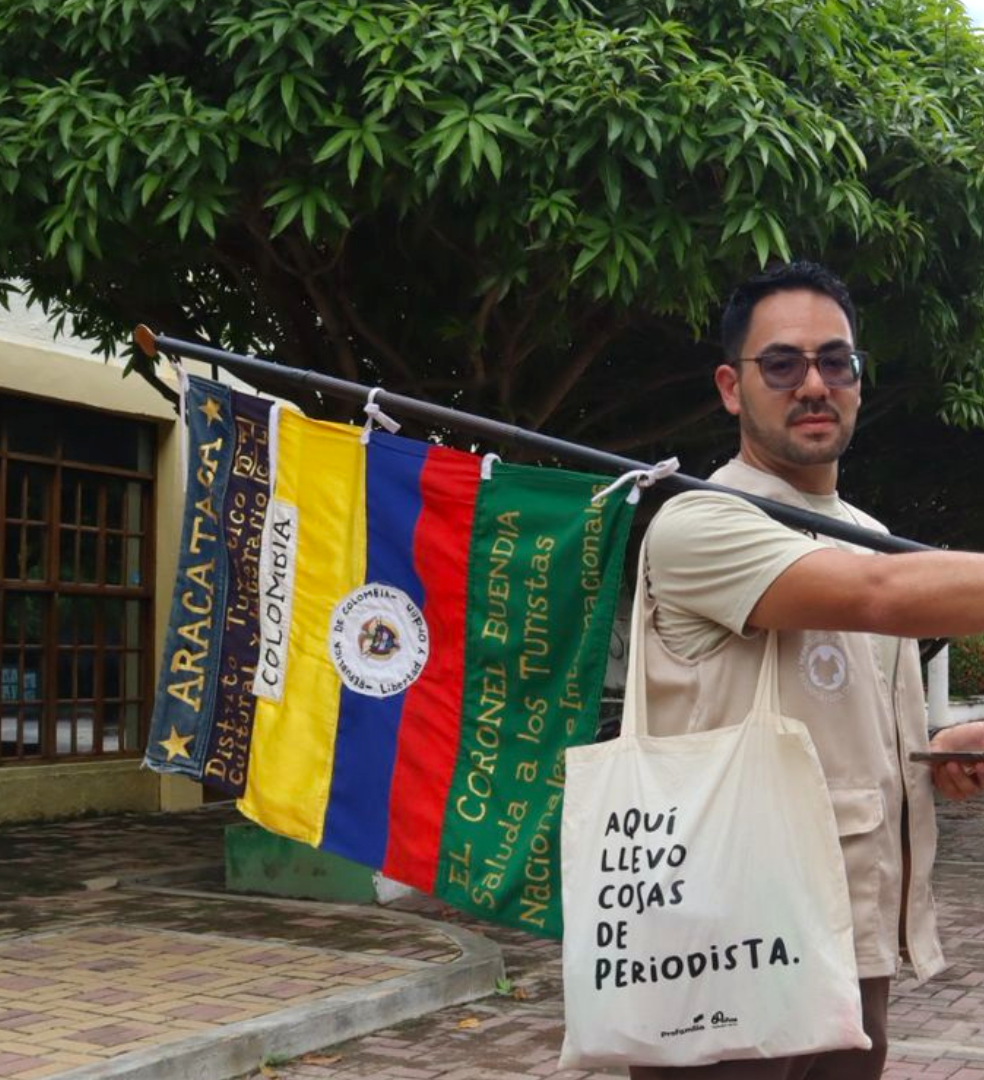
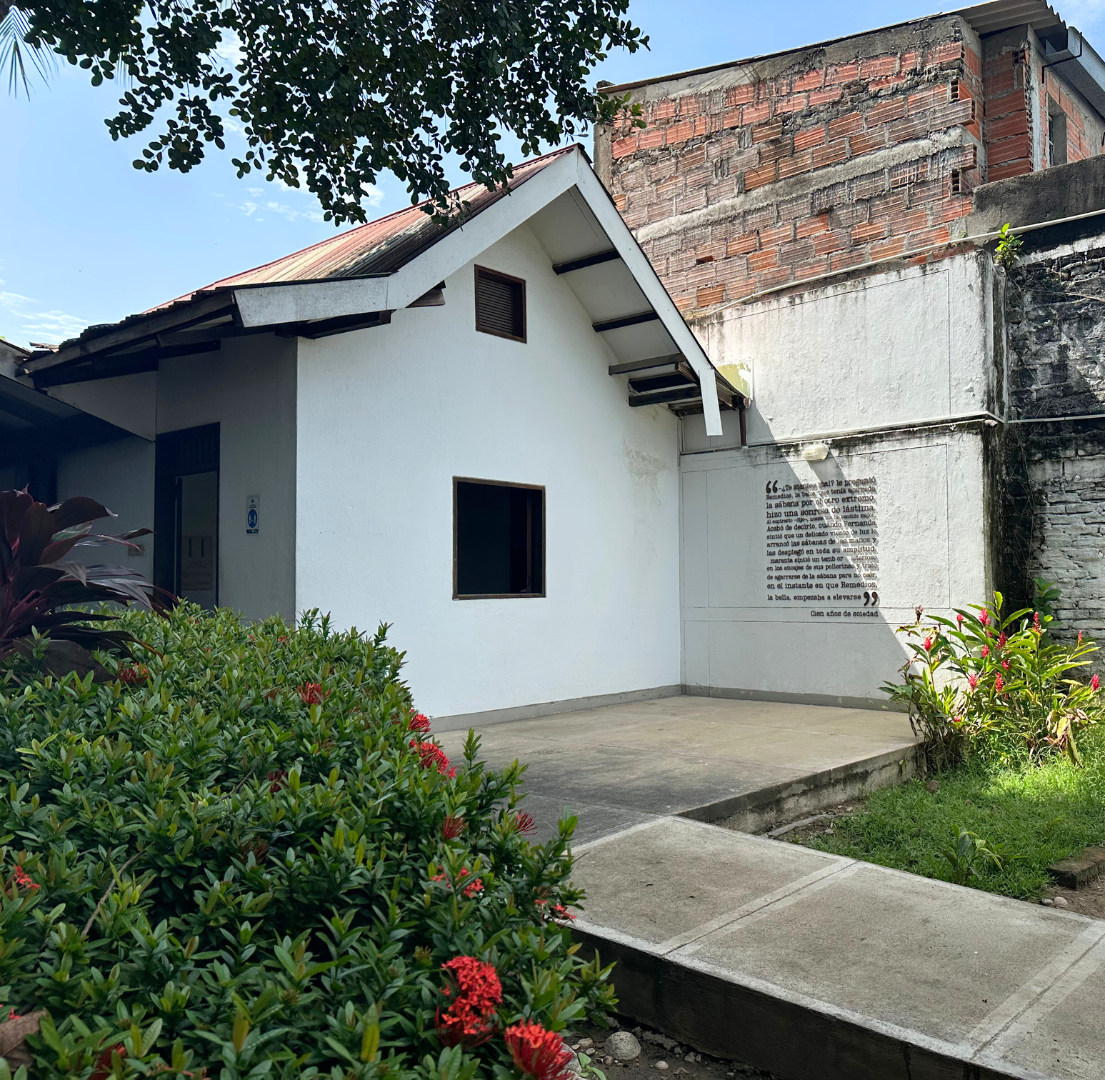
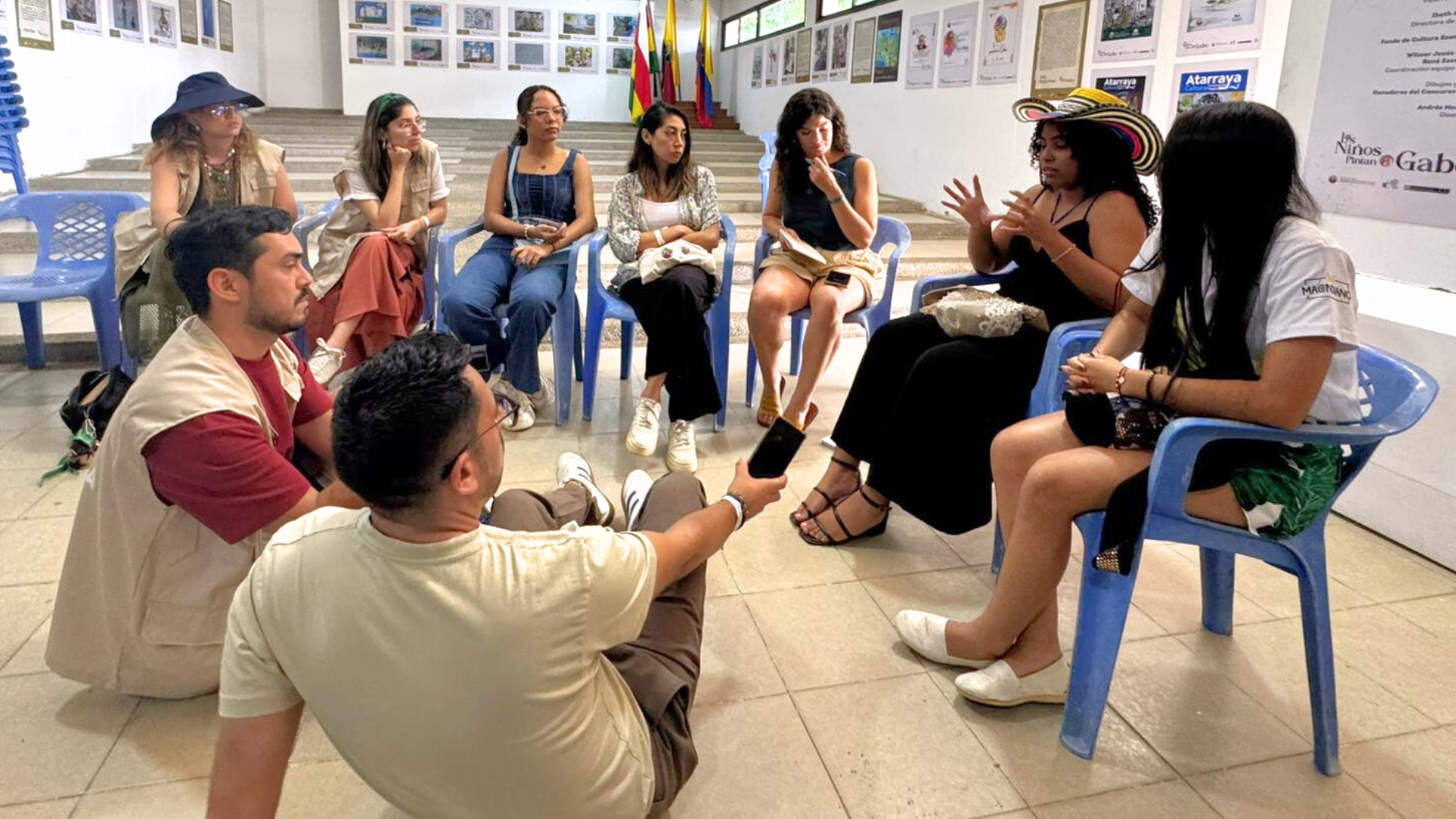

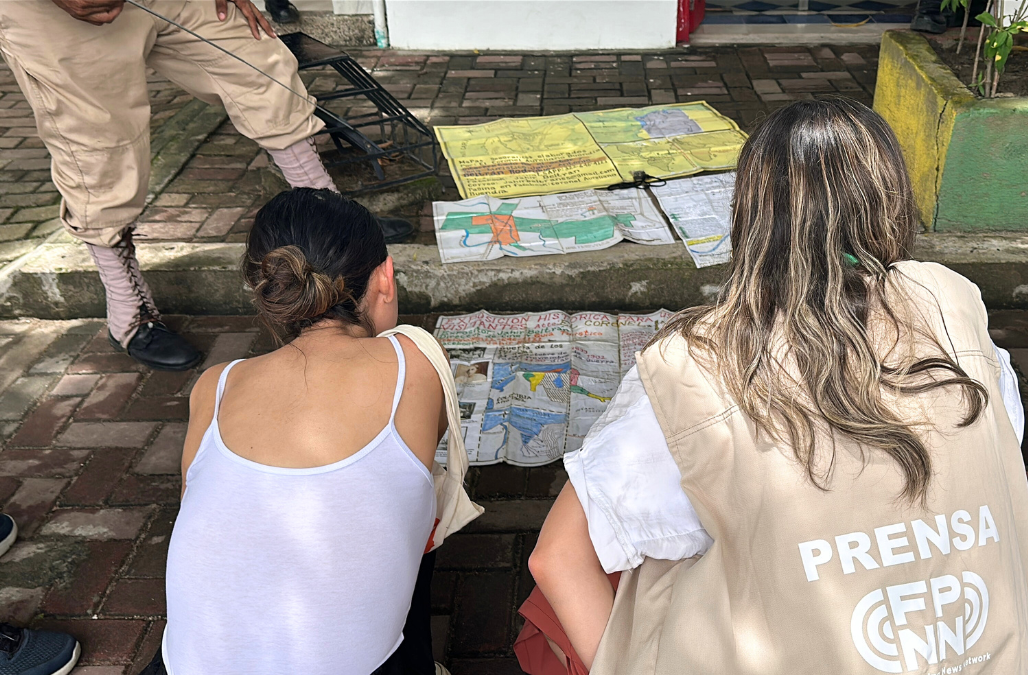
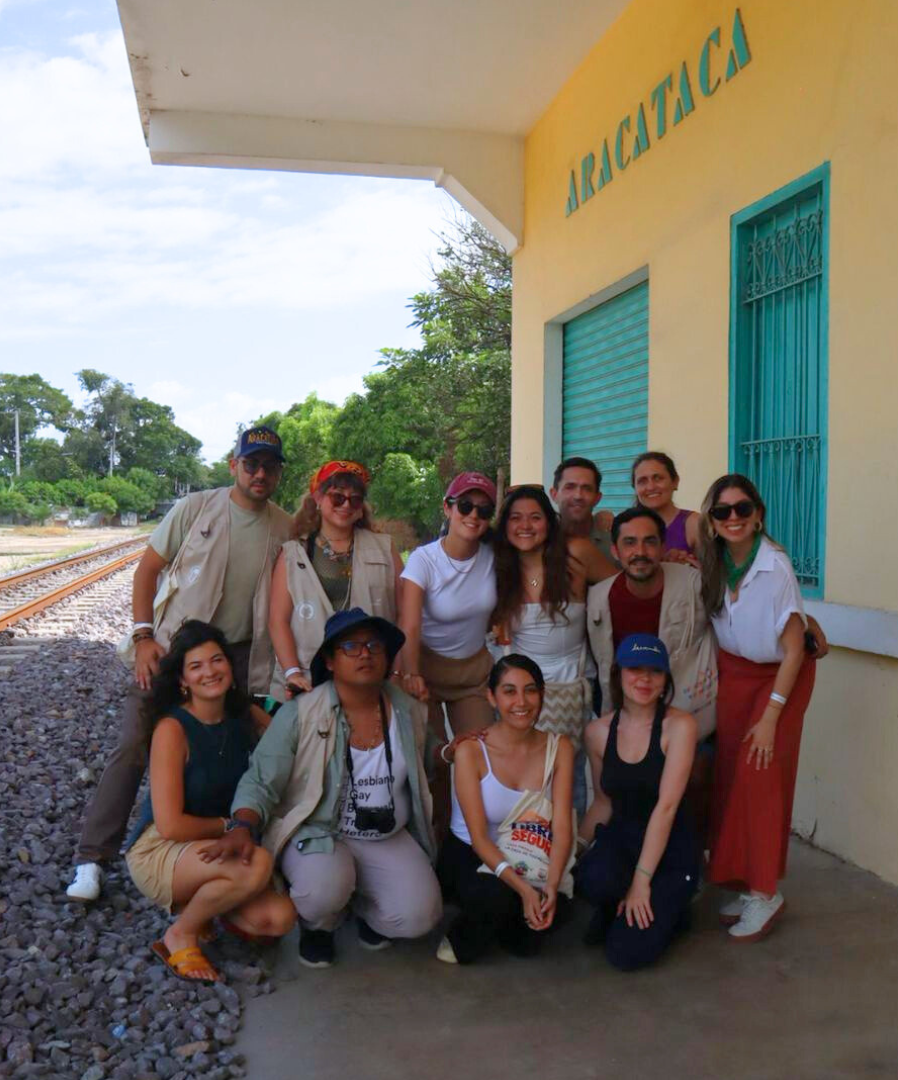
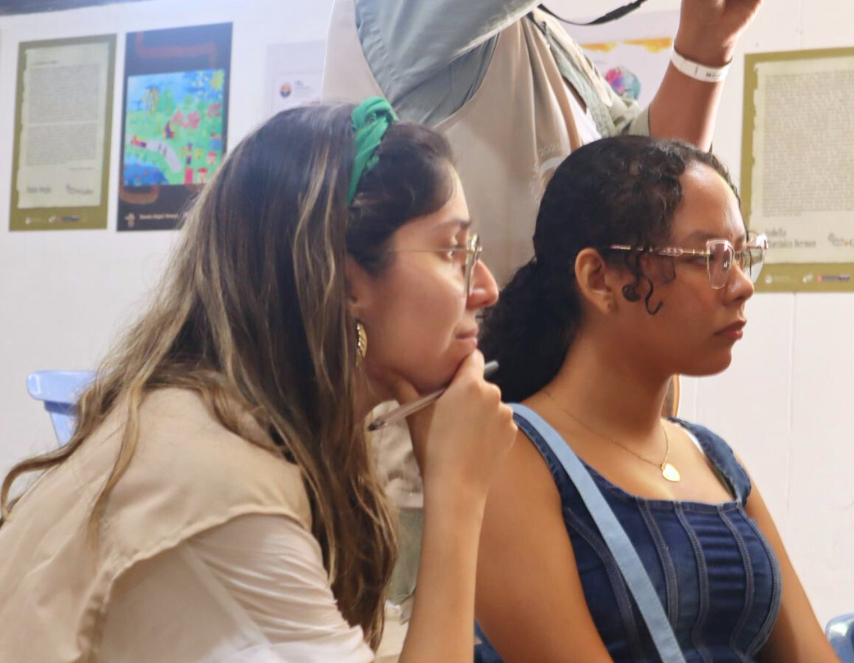
Stories from the FPNN journalists →
Voices That Unite: A Journey Through Family Planning in Colombia
By Laura Gutiérrez
“In territories where access is slow and unequal, the bicycle becomes a symbol of freedom and dignity.”
Related Resources →
#ICFP2025 is Here
ICFP is for Everyone. There’s still time to register for this year’s conference happening 1–6 November in Bogotá, Colombia! Make connections, find solutions, and join the global SRHR conversation at ICFP.
Can’t make it in person? No problem. You can register to attend ICFP 2025 in person or virtually—and don’t miss ICFP LIVE, our completely free content open to all!
FPNN Amplifies Solutions
The Family Planning News Network (FPNN) is a global platform connecting journalists and communities to share local stories and solutions in SRHR—driving dialogue, understanding, and action.
Want to get involved? FPNN is looking for partners to help expand this work. You can also join the network as a community reporter today!

